Ida Tarbell
description: an American journalist, known for her pioneering investigative reporting that led to the breakup of the Standard Oil Company
67 results
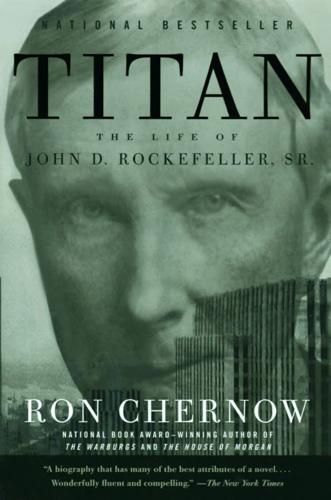
Titan: The Life of John D. Rockefeller, Sr.
by
Ron Chernow
Published 1 Jan 1997
Lyon, Success Story, p. 213. Tarbell, All in the Day’s Work, p. 202. Yergin, The Prize, p. 102. IMT, B 1/14 T-057, letter from J. M. Siddall to Ida Tarbell, August 6, 1903. Brady, Ida Tarbell, p. 145. Ibid., p. 143. IMT, B 1/14, letter from J. M. Siddall to Ida Tarbell, n.d. The American Magazine, November 1910. RAC, Inglis notes, 4.12, “Reminiscences.” IMT, B 1/14, letter from J. M. Siddall to Ida Tarbell, June 15, 1903. Ibid. Ibid., letter from J. M. Siddall to Ida Tarbell, October 26, 1903. Tarbell, All in the Day’s Work, p. 234. Ibid., p. 235. Ibid. Ibid., p. 236. McClure’s Magazine, August 1905.
…
Ibid., p. 83. Ibid., p. 99. Brady, Ida Tarbell, p. 91. The World, n.d. [1905]. Lyon, Success Story, p. 146. Ibid., p. 117. Ibid., p. 199. Ibid., p. 152. Steffens, The Autobiography of Lincoln Steffens, p. 361. Ibid., pp. 392–93. Tarbell, The History of the Standard Oil Company, p. ix. IMT, “Documents to Be Catalogued,” letter from W. W. Tarbell to Ida Tarbell, April 14, 1893. Tarbell, All in the Day’s Work, p. 45. Ibid., p. 207. Brady, Ida Tarbell, p. 123. Ibid., p. 129. Ibid., p. 130. Destler, Henry Demarest Lloyd, p. 353. Brady, Ida Tarbell, p. 132. Twain, Mark Twain’s Correspondence with Henry Huttleston Rogers, p. 478.
…
The Philadelphia Ledger, July 21, 1905. RAC, III 2.Z B46, “Interview with John D. Rockefeller, Jr.” Stasz, The Rockefeller Women, p. 232. IMT, B 1/14 T-053, letter from J. M. Siddall to Ida Tarbell, April 28, 1903. Ibid. IMT, “Documents to Be Catalogued,” letter from J. M. Siddall to Ida Tarbell, April 30, 1903. IMT, B 2/14, letter from J. M. Siddall to Ida Tarbell, n.d. IMT, B 1/14, letter from J. M. Siddall to Ida Tarbell, September 22, 1903. IMT, “Documents to Be Catalogued,” T-066, “Memo of Interview with Frank Rockefeller, January 22, 1904.” Rugoff, America’s Gilded Age, p. 162. Swanberg, Pulitzer, p. 187.
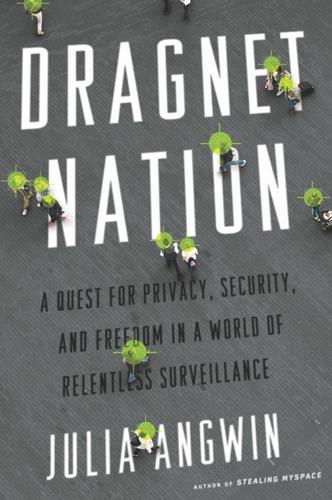
Dragnet Nation: A Quest for Privacy, Security, and Freedom in a World of Relentless Surveillance
by
Julia Angwin
Published 25 Feb 2014
After Lavabit shut down: Jon Callas, “To Our Customers,” Silent Circle Blog, August 9, 2013, http://silentcircle.wordpress.com/2013/08/09/to-our-customers/. The Riseup collective posted: Riseup.net, “Riseup and Government FAQ,” accessed August 20, 2013, https://www.riseup.net/en/riseup-and-government-faq. 9. INTRODUCING IDA Ida Tarbell was: Kathleen Brady, Ida Tarbell: Portrait of a Muckraker (New York: Seaview/Putnam, 1984). Some studies show that avoiding: Jeffrey T. Hancock, Michael T. Woodworth, and Saurabh Goorha, “See No Evil: The Effect of Communication Medium and Motivation on Deception Detection,” Group Decision and Negotiation 19, no. 4 (July 2009): 327–43.
…
As I triple-checked that I was backing up my e-mails onto my hard drive and into my encrypted cloud service, I thought about how absurd my privacy journey was becoming. I was hoarding all my data in case of an apocalypse. And even more strangely, the apocalypse seems to be right around the corner. I was turning into a data survivalist. 9 INTRODUCING IDA Ida Tarbell was an investigative journalist who exposed the abuses of the Standard Oil Company at the turn of the twentieth century. She is also my alter ego. Creating a fake identity was a key part of my strategy of data pollution. In cases where I couldn’t avoid a dragnet, most likely when buying things or logging in to websites, I would try to contribute Ida’s information to the dragnet rather than my own.
…
But I wasn’t looking for perfect; I just wanted to force the trackers to put some effort into tracking me specifically, rather than sweeping up data about me effortlessly. I chose Ida because she is part of a generation of journalists that I admire. Known as “muckrakers,” investigative journalists such as Ida Tarbell and Upton Sinclair exposed the underbelly of the industrial revolution, from monopolistic price gouging by the trusts to working conditions in slaughterhouses. Their work led to laws that reined in the worst excesses of the era. I believe that today we are at a similar turning point. As our nation shifts toward an information economy, there are few laws policing the booming industry giants and few governmental or nonprofit institutions with the technical savvy to police the information economy.
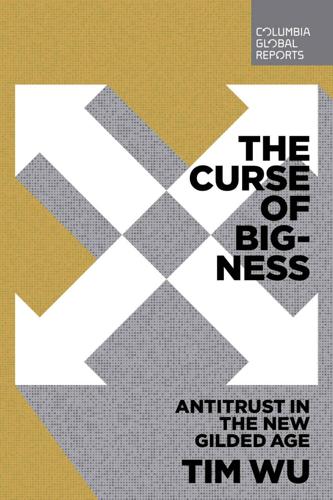
The Curse of Bigness: Antitrust in the New Gilded Age
by
Tim Wu
Published 14 Jun 2018
United States, 370 U.S. 294 (1962). 55 “excessive concentration of economic power”: “The Political Content of Antitrust,” Robert Pitofsky, University of Pennsylvania Law Review 127 (1979): 1051. 58 “tend to tilt toward the wishes of corporations”: “Testing Theories of American Politics: Elites, Interest Groups, and Average Citizens,” Martin Gilens and Benjamin I. Page, Perspectives on Politics 12 (2014): 3. 59 “was like a general who”: “John D. Rockefeller, A Character Sketch,” Ida Tarbell, McClure’s Magazine, July 1905. 60 “‘But we don’t want to sell’”: The History of the Standard Oil Company, Ida Tarbell, Macmillan Company, 1904. 61 “there was no more faithful baptist”: The History of the Standard Oil Company, Ida Tarbell, Macmillan Company, 1904. 61 “A man always has two reasons”: The House of Morgan: An American Banking Dynasty and the Rise of Modern Finance, Ron Chernow, Atlantic Monthly Press, 1990. 62 “his party included, characteristically”: The Great Pierpont Morgan: A Biography, Frederick L.
…
Quite a feat for a man born poor, to a father who was little more than a confidence man. Once upon a time, in the late 1860s, “the Standard” had been just a mid-sized Cleveland operation with no particular technological advantages over its rivals. It did, however, have the strategic genius of Rockefeller and his particular talent for industry conquest. As journalist Ida Tarbell would write of him, Rockefeller “was like a general who, besieging a city surrounded by fortified hills, views from a balloon the whole great field, and see how, this point taken, that must fall; this hill reached, that fort is commanded. And nothing was too small: the corner grocery in Browntown, the humble refining still on Oil Creek, the shortest private pipe line.
…
Roosevelt, as we’ve said, was determined to demonstrate that government was sovereign over even the mightiest corporations, even Standard Oil. But Roosevelt was politically savvy enough to understand that he needed an angle. His opportunity was created by the publication, in 1904, of a sensational and widely read history of Standard Oil in McClure’s magazine by reporter Ida Tarbell. The History of the Standard Oil Company, nineteen parts in total, was a product of extensive reporting, and it told the full story of both Standard Oil’s rise to power and its quashing of threats to its rule. Carefully researched and written in a balanced fashion, yet dark in its implications, the series reached a large audience and provoked national outrage.
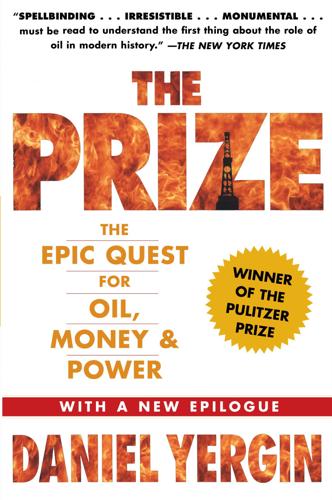
The Prize: The Epic Quest for Oil, Money & Power
by
Daniel Yergin
Published 23 Dec 2008
Lamoreaux, The Great Merger Movement in American Business, 1895-1904 (Cambridge: Cambridge University Press, 1985), chap. 7; Kathleen Brady, Ida Tarbell: Portrait of a Muckraker (New York: Seaview/Putnam, 1984), pp. 120-23 ("great feature" and "new plan of attacking"). H. H. Rogers complained to Ida Tarbell that he could not understand how Harper's could have published William Demarest Lloyd's Wealth Against Commonwealth, as he "had known Harry Harper socially very well." Tarbell's own theory was that "it was the very desire to keep the Standard Oil people out of society that had something to do with the Harpers publishing that book." Interview with H. H. Rogers, T-004, Tarbell papers. [5] Brady, Ida Tarbell, pp. 115 ("holding people off'), 110 ("playing cards"), 123 ("Well, I'm sorry"); Tarbell, All in the Day's Work, pp. 19, 204 ("Pithole"), 207 ("Don't do it")
…
[12] Goulder, Rockefeller, p. 223 ("wise old owl"); Nevins, Study in Power, vol. 1, pp. 331, 326 ("expose as little"), 157 ("wonder how old"), 337 ("anxiety"), 328 ("ten letters"); vol. 2, p. 427 ("unemotional man"); Ida M. Tarbell, The History of the Standard Oil Company (New York: McClure, Phillips & Company, 1904), vol. 1, pp. 105-06. [13] Vinnie Crandall Hicks to Ida Tarbell, June 29, 1905, T-020 and Marshall Bond to Ida Tarbell, July 3, 1905, T-021, Tarbell papers ("Sunday school" and "Buzz"); Rockefeller, Random Reminiscences, pp. 25-26; Nevins, Study in Power, vol. 2, pp. 84 ("dentist's chair"), 91-95 ("poulets" and "life principle"), 193-94 ("best investment" and "spare change"); William Manchester, A Rockefeller Family Portrait, from John D. to Nelson (Boston: Little, Brown, 1959), pp. 25-26; Flynn, God's Gold, pp. 232-35, 280
…
With the issue of trusts firmly on the table at McClure's, Tarbell considered undertaking her own investigation. The obvious target was the Mother of Trusts; she decided to take it on. Making a pilgrimage with McClure to a mud bath at an ancient spa in Italy, she won his approval. So Ida Tarbell began the research that would eventually topple Standard Oil. Life is not without its ironies, and the book that emerged from Tarbell's research would stand as the final revenge of the Oil Regions against their conquerors. For Ida Tarbell had grown up in the boom-and-bust communities of the Oil Regions. Her father, Frank Tarbell, had gone into business as a tank maker just months after Drake's discovery, and in the 1860s had done rather well, setting himself up, for a time, in the great boom town of Pithole.
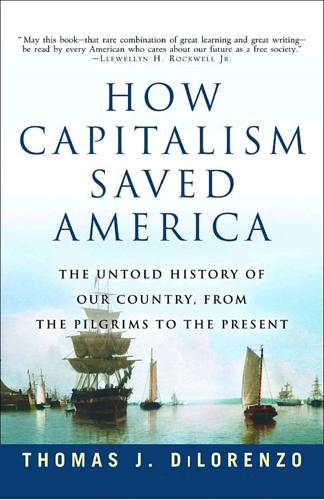
How Capitalism Saved America: The Untold History of Our Country, From the Pilgrims to the Present
by
Thomas J. Dilorenzo
Published 9 Aug 2004
There was never any threat that these “horizontal mergers”—the combination of two firms that are in the same business—would create a monopoly, for Standard Oil had literally hundreds of competitors, including such oil giants as Sun Oil, not to mention its many large competitors in international markets. One of Rockefeller’s harshest critics was journalist Ida Tarbell, whose brother was the treasurer of the Pure Oil Company, which could not compete with Standard Oil’s low prices. She published a series of hypercritical articles in McClure’s magazine in 1902 and 1903, which were turned into a book entitled The History of the Standard Oil Company, a classic of antibusiness propaganda.25 Tarbell’s writings are emotional, often illogical, and lacking in any serious attempt at economic analysis.
…
According to this theory, a “predatory firm” that possesses a “war chest” of profits will cut its prices so low as to drive all competitors from the market. Then, when it faces no competition, it will charge monopolistic prices. It is assumed that at that point no other competition will emerge, despite the large profits being made in the industry. Journalist Ida Tarbell did as much as anyone to popularize this theory in her book on Standard Oil, in a chapter entitled “Cutting to Kill.” To economists, however, predatory pricing is theoretical nonsense and has no empirical validity, either. It has never been demonstrated that a monopoly has ever been created in this way.
…
Standard Oil became much less efficient as a result, to the benefit of its less efficient rivals and to the detriment of consumers. Standard Oil’s competitors, who with their behind-the-scenes lobbying were the main instigators of the federal prosecution, are (along with “muckracking” journalists like Ida Tarbell) the real villains in this story. They succeeded in using political entrepreneurship to hamstring a superior market entrepreneur, which in the end rendered the American petroleum industry less competitive. The prosecution of Standard Oil was a watershed event for the American petroleum industry.
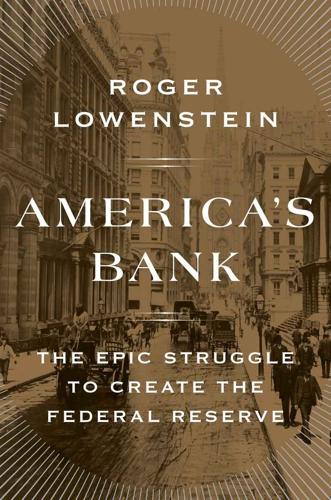
America's Bank: The Epic Struggle to Create the Federal Reserve
by
Roger Lowenstein
Published 19 Oct 2015
In a perceptive senior thesis submitted at Harvard six decades later, Michael Rockefeller, the senator’s great-grandson, would write that “it became easy for Aldrich to conceive of legislation as being primarily a problem of consultation with the economic aristocracy followed by the application of personal authority.”* Aldrich generally ignored public criticism, believing that the Rhode Island machine shielded him from the vicissitudes of politics. But he was foolish to be so cavalier about his reputation. The American public was developing an appetite for scandal; journalists such as Ida Tarbell were writing hard-hitting articles exposing corruption in politics and unscrupulous behavior in business. American magazines had previously catered to a literary audience, but scandal sold better, and with technological innovations such as glazed paper made from wood pulp, publishers were able to cut prices and reach a mass audience.
…
With an eye on the unforgiving harvest calendar, Perkins concluded gloomily, “There seems to be a general feeling that we are likely to have a pretty serious time next Fall.” CHAPTER FOUR PANIC A panic grows by what it feeds on. —WALTER BAGEHOT Who is to be Mr. Morgan’s successor? —IDA TARBELL IN THE FALL OF 1907, America suffered the worst breakdown in the history of the National Banking system. Overnight, banks were stripped of reserves and the country was plunged into a severe depression. Cash (or its equivalent in gold) was all that people wanted, and cash vanished from circulation due to people’s very attempts to secure it.
…
Thomas, the retired president of the New York Stock Exchange: UNTERMYER: When Mr. Morgan gave the word, did that change the panic conditions? THOMAS: It certainly had a very decided effect upon relieving the situation. UNTERMYER: Then, it rested with one man to say whether the panic should go on or should end, did it? Spurred by Untermyer, the journalist Ida Tarbell zeroed in on one of the system’s weakest links: the New York Clearing House. Tarbell claimed that this private bankers’ club was “exercising power which it had been gradually gathering to itself.” It was ill equipped to provide security. Its authority was citywide, not national; it was not even universally subscribed to within New York and it dispensed its powers arbitrarily.
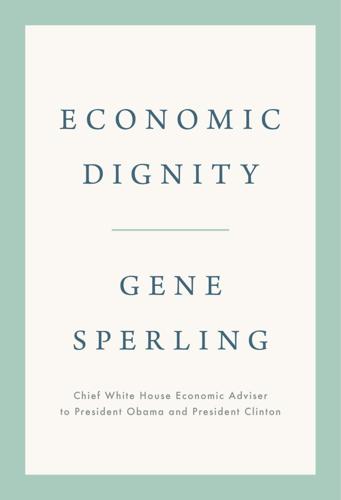
Economic Dignity
by
Gene Sperling
Published 14 Sep 2020
The reforms and investigations would go beyond workplace safety to address low wages, long hours, unsanitary conditions, and child labor, with the adoption of thirty-six new laws at the city and state levels that eventually served as models for other states and for the New Deal’s labor laws in the 1930s.40 Perkins later said that the legislation in New York was a “turning point” in “American political attitudes and policies towards social responsibility,” and described the Triangle Shirtwaist Factory fire as “the day the New Deal was born.”41 Later, in her role as secretary of labor, Perkins led the agency to create the Bureau of Labor Standards in 1934, the first permanent federal agency established primarily to promote safety and health for workers. This was the predecessor of the Occupational Safety and Health Administration (OSHA), which was created in 1971. IDA TARBELL: SMALL BUSINESSES UP AGAINST A MONOPOLY Another way economic domination can undercut a basic sphere of dignity is when entrepreneurs and small business owners are crushed under brutally unfair, unchecked monopolistic practices. To be clear, there is nothing wrong in a free-market economy with any company being outcompeted by a rival that makes a better widget, or the same widget at a better price.
…
To be clear, there is nothing wrong in a free-market economy with any company being outcompeted by a rival that makes a better widget, or the same widget at a better price. Yet a basic underpinning of economic freedom has long been that competition between sellers of goods and services is driven by price, quality, and fair opportunities—not by arbitrary, brute power. Ida Tarbell was a fourteen-year-old eyewitness to the ruin that took over her once prosperous hometown in the oil-rich region of western Pennsylvania in the early 1870s when it received “a blow between the eyes”42 when small business owners like Tarbell’s father found themselves victimized by Standard Oil’s brute monopolistic practices.
…
Desmond sees a direct relation to aspects of work life today: Modern-day workers are subjected to a wide variety of surveillance strategies, from drug tests and closed-circuit video monitoring to tracking apps and even devices that sense heat and motion. . . . But it’s only the technology that’s new. The core impulse behind that technology pervaded plantations, which sought innermost control over the bodies of their enslaved work force.94 FINANCIAL DOMINATION: FROM IDA TARBELL TO ELIZABETH WARREN AND THE CONSUMER FINANCIAL PROTECTION BUREAU Ensuring that Americans can participate in the economy without domination and humiliation should never be an issue limited only to people in their roles as workers. How people are treated in their roles as small business owners or as consumers trying to care for or invest in their family’s well-being and future will always be an essential component of economic dignity.
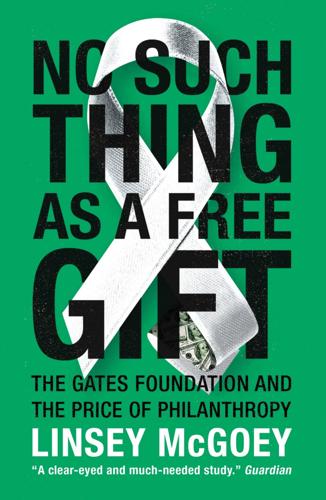
No Such Thing as a Free Gift: The Gates Foundation and the Price of Philanthropy
by
Linsey McGoey
Published 14 Apr 2015
He fought for years to secure a charter that would permit him to establish the Rockefeller Foundation. Time and again, the US Congress rejected his overtures, citing concern for the public welfare and objections over the manner in which Rockefeller had amassed his fortune. Published in McClure’s Magazine in the early 1900s, a series of articles by the journalist Ida Tarbell exposed decades of corporate espionage, price-fixing, bribery, and the creation of bogus companies to disguise illegal activities. In 1909, the Department of Justice launched an antitrust suit against Rockefeller’s Standard Oil. Senator Robert La Follette denounced Rockefeller as the ‘greatest criminal of our age’.2 Philanthropic foundations at this time were viewed as mere outposts of profit-seeking empires, only cosmetically different from the corporations that had spawned them, a convenient way for business magnates to extend their reach over domestic and foreign populaces.
…
At the urging of his son, he created, in 1902, the General Education Board, which sought to improve educational opportunities ‘without distinction of race, sex, or creed’. His dismay at poverty and his belief in human equality only renders more troubling his role in exacerbating the social and economic inequalities that he seemed to deplore.51 The Justice Department’s anti-trust suit against Rockefeller’s company was launched after Ida Tarbell’s investigation into Rockefeller’s company was serialized in the popular McClure’s Magazine and later collected in her bestselling volume, The History of the Standard Oil Company. ‘Very often people who admit the facts, who are willing to see that Mr. Rockefeller employed force and fraud to secure his ends, justify him by declaring, “It’s business”’, Tarbell commented after her book was published.
…
Du Bois’, Atlantic Monthly (November 1965). 35Ibid. 36Zinn, A People’s History, 272. 37Nasaw, ‘Introduction’, xii. 38Herbert Spencer, Social Statics, Abridged, Together With Man versus the State, Revised (1896), 150. 39Nasaw, Andrew Carnegie, (London: Penguin, 2007), 331. 40Ibid., 522. 41Ibid., 703. 42Lester Frank Ward, ‘Plutocracy and Paternalism’, Forum (November 1895), 303. 43For a comprehensive account of Ludlow and its effects on American business practices, see Andrea Tone, The Business of Benevolence: Industrial Paternalism in Progressive America, (Ithaca, NY: Cornell University Press, 1997), 19. 44Quoted in Inderjeet Parmar, Foundations of the American Century (New York: Columbia University Press, 2012), 38. 45Tone, The Business of Benevolence, 117. 46Inaugural address (1913), see millercenter.org; Wilson’s ‘first message to Congress’, quoted in Phillips, Wealth and Democracy, 47. 47Robert Arnove and Nadine Pinede, ‘Revisiting the “Big Three” Foundations’, Critical Sociology, vol. 33 (2007), 390. 48Ibid., 391. 49Max Weber, The Protestant Ethic and the Spirit of Capitalism (London: Routledge, 2001), 159–63. 50Chernow, Titan, 191. 51Levenick, ‘The Rockefeller Legacy’. 52Steve Weinberg, Taking on the Trust: How Ida Tarbell Brought Down John D. Rockefeller and Standard Oil (New York: W. W. Norton, 2008), 225. 53Ibid., 233. 54Chernow, Titan, 468. 55Ibid. 56Quoted in Samuel Crowther, ‘Henry Ford: Why I Favour Five Days’ Work with Six Days’ Pay’, World’s Work (October 1926), 613–16. 57See Tone, The Business of Benevolence. 58Corporate release quoted in Neil Baldwin, Henry Ford and the Jews: The Mass Production of Hate (New York: Public Affair Books, 2001), 37. 59Quoted in Thomas Conley, Toward a Rhetoric of Insult (Chicago: University of Chicago Press, 2010), 104. 60Baldwin, Henry Ford and the Jews, 172–3 see also Victoria Saker Woester, Henry Ford’s War on Jews and the Legal Battle Against Hate Speech (Stanford: Stanford University Press, 2012). 61Pankaj Mishra, ‘Watch This Man: Review of Civilisation: The West and the Rest’, London Review of Books, 3 November 2011, 10–12. 62Peter Frumkin, ‘He Who’s Got It Gets to Give It’, Washington Post, 3 October 1999, B01; See also Joel Fleishman, The Foundation: A Great American Secret–How Private Money is Changing the World (New York: Public Affairs Books, 2007). 63Dowie, American Foundations, 12. 64Zunz, Philanthropy in America, 198. 65Ibid. 66Dowie, American Foundations, 13. 67Quoted in Chrystia Freeland, Plutocrats: The Rise of the New Global Super-Rich and the Fall of Everyone Else (London: Penguin, 2012), 263. 68Ibid. 69Dowie, American Foundations, 13. 70John Simon, ‘The Regulation of American Foundations: Looking Backward at the Tax Reform Act of 1969’, Voluntas, vol. 6, no. 3 (1995), 243–4. 71There have been some important developments in the field of US charity regulation, but none on the same scale as the 1969 Tax Reform Act.
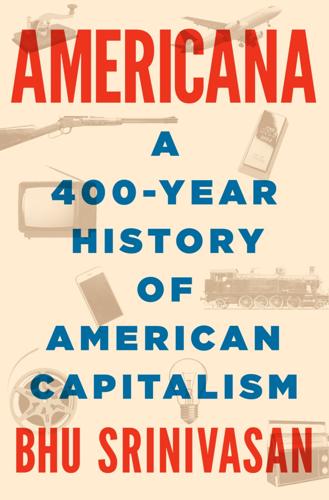
Americana: A 400-Year History of American Capitalism
by
Bhu Srinivasan
Published 25 Sep 2017
Still, American culture must be credited for encouraging the exact form of behavior that maximized this national advantage. “On every rocky farm, in every poor settlement of the region, was some man whose ear was attuned to fortune’s call, and who had the daring and the energy to risk everything he possessed on an oil lease,” wrote Ida Tarbell. With this influx of men, along with Drake’s technique, “oil poured forth in floods.” Tarbell’s father was such a man. He was a schoolteacher in Iowa visiting the roots of his childhood in Erie County. One visit to the oil region pointed to a new career. But her father did not look to speculate on an oil lease.
…
Or the price would have fallen to such a degree that the barrel rental and transportation costs ate up all the profits. The ability to thrive in such a climate, to be repeated in plenty of other oil regions over the decades, gave the successful American oilman that rough-hewn, swaggering reputation: “They loved the game, and every man of them would take his last dollar on the chance at striking oil,” concluded Ida Tarbell. To her there was something heroic in the character of such men, both winners and losers, and their willful and enthusiastic participation in this rugged, wild form of individualistic capitalism. But Tarbell was also one of the great critics of industrial capitalism, and her preamble of the early days of oil was a setup to contrast earnest men like her father with the prime object of her criticism.
…
Over forty-five days, twenty-two of the twenty-six Cleveland refiners agreed to be acquired by Rockefeller. This acquisition spree would one day become the source of much dispute as to what pressure the sellers felt and whether fair prices were paid, but the indisputable fact is that the vast majority of Cleveland refineries sold out to Standard Oil within an alarmingly short time frame. To Ida Tarbell this was Standard Oil’s original sin that tainted all future achievements. Rockefeller often defended the transactions by saying that he offered stock in Standard Oil to anyone who preferred equity, which many did; those who chose to take stock instead of cash became overwhelmingly wealthy. Regardless of the perspective, Standard Oil, within a few short weeks, took its daily refining capacity from less than two thousand barrels to over ten thousand barrels, approximately 20 percent of the industry’s capacity.

Americana
by
Bhu Srinivasan
Still, American culture must be credited for encouraging the exact form of behavior that maximized this national advantage. “On every rocky farm, in every poor settlement of the region, was some man whose ear was attuned to fortune’s call, and who had the daring and the energy to risk everything he possessed on an oil lease,” wrote Ida Tarbell. With this influx of men, along with Drake’s technique, “oil poured forth in floods.” Tarbell’s father was such a man. He was a schoolteacher in Iowa visiting the roots of his childhood in Erie County. One visit to the oil region pointed to a new career. But her father did not look to speculate on an oil lease.
…
Or the price would have fallen to such a degree that the barrel rental and transportation costs ate up all the profits. The ability to thrive in such a climate, to be repeated in plenty of other oil regions over the decades, gave the successful American oilman that rough-hewn, swaggering reputation: “They loved the game, and every man of them would take his last dollar on the chance at striking oil,” concluded Ida Tarbell. To her there was something heroic in the character of such men, both winners and losers, and their willful and enthusiastic participation in this rugged, wild form of individualistic capitalism. But Tarbell was also one of the great critics of industrial capitalism, and her preamble of the early days of oil was a setup to contrast earnest men like her father with the prime object of her criticism.
…
Over forty-five days, twenty-two of the twenty-six Cleveland refiners agreed to be acquired by Rockefeller. This acquisition spree would one day become the source of much dispute as to what pressure the sellers felt and whether fair prices were paid, but the indisputable fact is that the vast majority of Cleveland refineries sold out to Standard Oil within an alarmingly short time frame. To Ida Tarbell this was Standard Oil’s original sin that tainted all future achievements. Rockefeller often defended the transactions by saying that he offered stock in Standard Oil to anyone who preferred equity, which many did; those who chose to take stock instead of cash became overwhelmingly wealthy. Regardless of the perspective, Standard Oil, within a few short weeks, took its daily refining capacity from less than two thousand barrels to over ten thousand barrels, approximately 20 percent of the industry’s capacity.
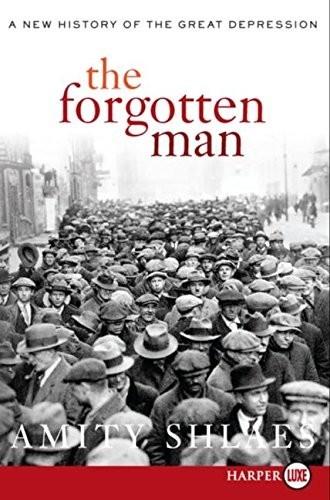
The Forgotten Man
by
Amity Shlaes
Published 25 Jun 2007
The first year out of office counted most in earnings for ex-presidents, and he was determined to make his own worth it. He also headed down to New York from time to time—the next year, for example, he would join Irita van Doren, a literary editor, along with Governor Roosevelt, Thomas W. Lamont of Wall Street, William Woodin (a financier), Ida Tarbell (the journalist), Henry Morgenthau Sr., and others in serving on the welcoming committees for the Indian poet Sir Rabindranath Tagore. As for Tugwell, he certainly noted the crash; his thoughts about the economy were already dark. He was worried about the prospects for his father, who was expanding his business, working with a few small banks.
…
P. Morgan, would announce the creation of an additional committee to recognize Russia. Another group of women also signed a recognition petition that went to the president—signers included Mrs. Lorado Taft, Paul Douglas’s new mother-in-law, and Jane Addams of Chicago, as well as Amelia Earhart, Ida Tarbell, and Irita van Doren in New York. It was not yet clear whether Roosevelt would actually act, but it was clear that he would take the idea of recognition far more seriously than had Hoover, Coolidge, Harding, or even Wilson’s secretary of state, Bainbridge Colby. Meanwhile, as a cultural accompaniment to the political theme of the Forgotten Man, Warner Brothers was readying a film for the inaugural year, titled Gold Diggers of 1933.
…
The headline describing the meeting replicated headlines from the Hoover years: “Leaders with a Program for National Recovery to See Roosevelt Today: Cooperation Is Aim.” Donald Richberg was also pushing for cooperative planning. Just as back in 1932, Roosevelt seemed to be receptive to the planning idea. Was charity the answer? In the autumn he had called for a nationwide charity drive: the names on the benefit lists were reported to include Lillian Wald, Ida Tarbell, Arthur Hays Sulzberger, Mrs. Roosevelt, Mrs. Dwight Morrow, and “Wendel L. Willkie.” At a press conference on the fourth day of January, the ambivalent president told reporters that he was thinking about renewing cooperation between government and business. Sensing ambivalence, Roosevelt scripted his way forward: “Don’t write the story that I am advocating the immediate reenactment of the NRA.
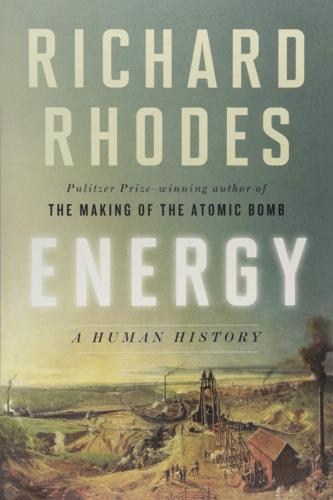
Energy: A Human History
by
Richard Rhodes
Published 28 May 2018
The record is rich with human stories, a cast of characters across four centuries that includes such historic figures as Elizabeth I, James I, John Evelyn, Abraham Darby, Benjamin Franklin, Thomas Newcomen, James Watt, George Stephenson, Humphry Davy, Michael Faraday, Herman Melville, Edwin Drake, Ida Tarbell, John D. Rockefeller, Henry Ford, Enrico Fermi, Hyman Rickover, the coal barons of old Pennsylvania, and the oil barons of California and Saudi Arabia—to name only some of the more obvious. Whole oceans of whales enter the story, the oil of their bodies lighting the world. Petroleum seeps from a streambed, and a Yale chemistry professor wonders what uses it might have.
…
Drake’s well was a pumper, not a gusher. Uncle Billy Smith had attached an ordinary hand-operated well pump to the drill casing on that first Monday after the strike while Drake scouted barrels. “They had to begin with so simple and elementary a matter as devising something to hold the oil,” writes Ida Tarbell, the Titusville native and contemporary reporter. “There were not barrels enough to be bought in America, although turpentine barrels, molasses barrels, whiskey barrels—every sort of barrel and cask” were put to use.2 Townsend, a shrewd businessman, soon bought a Titusville cooperage—a barrel factory—to profit meeting the demand.
…
“Ruin is the destination toward which all men rush,” Hardin warned, “each pursuing his own best interest in a society that believes in the freedom of the commons. Freedom in a commons brings ruin to all.”34 The ruin in the case of Oil Creek oil production was less depletion than environmental destruction of the valley through which Oil Creek flowed and the waterways adjoining and downstream. When Ida Tarbell was three, in 1860, she moved with her family into what she calls a “shanty” on a tributary of Oil Creek so that her father, a carpenter, could make wooden oil tanks for the burgeoning trade. She grew up in Venango County, attended high school in Titusville, and saw the negligence that the law of capture encouraged.
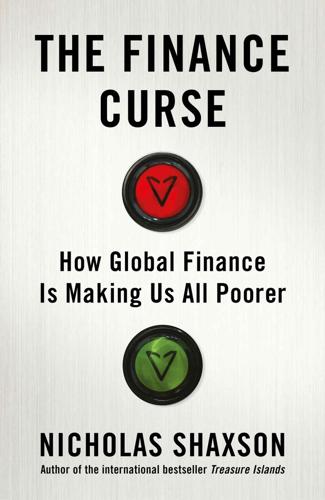
The Finance Curse: How Global Finance Is Making Us All Poorer
by
Nicholas Shaxson
Published 10 Oct 2018
This conflict is at the heart of the finance curse. The Theory of Business Enterprise came out in the wake of what was then, and may still be, the most impressive feat of investigative journalism in world history. This was an exposé of John D. Rockefeller’s Standard Oil monopoly by the journalist Ida Tarbell, who uncovered a conspiracy and cartel the likes of which the world had never seen. Rockefeller, she revealed, was a master of Veblenite sabotage, rigging markets in the production and distribution of oil and its refined products, buying or elbowing out rivals in a ruthless and sometimes violent quest to build an America-wide monopoly.
…
We hear it when the BBC wheels out know-nothing bankers or City pundits to applaud the latest merger-driven rise in the stock market, or the latest deregulatory or tax-cutting gift to the City of London, or a surge in banker bonuses or private equity activity, as if these things benefit Britain.14 To the extent that these profits are extracted from the veins of our economy, these soaring profits are all signs of economic malaise, not health. As Veblen famously put it, ‘business sagacity reduces itself in the last analysis to the judicious use of sabotage’. Veblen and Tarbell were often pilloried by their contemporaries, yet they have both been repeatedly proved correct. After her exposé of Standard Oil, Ida Tarbell was vilified by sections of the media. ‘The dear girl’s efforts … are pathetic,’ wrote one academic. She and her followers were ‘sentimental sob sisters’, wrote another. Rockefeller called her Miss Tar Barrel, a socialist and ‘that misguided woman’. She pretended to be fair, he said, but ‘like some women, she distorts facts … and utterly disregards reason’.
…
As Watson put it, ‘A repeated theme throughout pretty much every chapter of the 900-page Wealth of Nations is that productive labour is good and should be encouraged, whereas unproductive labour is bad and should be discouraged. We wouldn’t have a finance curse if we really did live in Adam Smith’s world.’ 6. From Steve Weinberg, Taking on the Trust: how Ida Tarbell brought down John D. Rockefeller and Standard Oil, W.W. Norton & Co., 2008, pp.219–20. Rockefeller defended himself by arguing that he had found a solution to the tragedy of the commons, where too many oilmen were drilling on the same bounteous oilfield, leading to overproduction and mayhem in oil prices. 7.
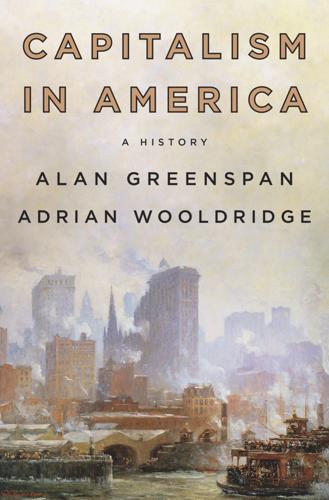
Capitalism in America: A History
by
Adrian Wooldridge
and
Alan Greenspan
Published 15 Oct 2018
A striking number of America’s most important social institutions—from the universities of Chicago and Stanford to the Rockefeller and Carnegie foundations—were created by men who were born within a few years of each other in the 1830s. These outsize figures have attracted outsize opprobrium. Ida Tarbell accused them of being “robber barons.” Teddy Roosevelt dubbed them “malefactors of great wealth.” Henry Adams described Jay Gould as “a spider” who “spun huge webs, in the corner and in the dark.” A popular Broadway show called Morgan “the great financial Gorgon.” There is some justification for this hostility: people seldom achieve great things without being willing to ride roughshod over the opposition.
…
(His business partner Henry Flagler’s favorite quotation, which he kept displayed on his desk, was “Do unto others what they would do unto you—and do it first.”) This allowed him to produce more oil at a lower cost than any of his competitors. He systematically eliminated those competitors by either inviting them to join his Standard Oil Company, which he founded in 1870, or, if like Ida Tarbell’s father they refused to sell, driving them out of business. “The Standard was an angel of mercy,” he said, “reaching down from the sky and saying ‘Get into the ark. Put in your old junk. We’ll take all the risks.’”4 By the late 1870s, firms in his alliance controlled more than 90 percent of the country’s oil business.
…
The Progressives’ greatest achievement was to encourage a change in American attitudes to government. Before they got to work, Americans were optimistic about business and cynical about government. A couple of decades later, Progressives had persuaded a significant number of people that the opposite was the case. Muckraking journalists exposed the dark side of America’s leading tycoons: Ida Tarbell published a nineteen-part magazine series in McClure’s Magazine arguing that Standard Oil’s rise had been produced by “fraud, deceit, special privilege, gross illegality, bribery, coercion, corruption, intimidation, espionage or outright terror.” Louis Brandeis, the “people’s attorney” and future Supreme Court justice, polemicized against “the curse of bigness” and banks that gambled with “other people’s money.”
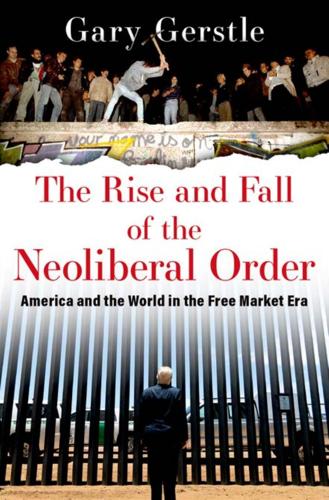
The Rise and Fall of the Neoliberal Order: America and the World in the Free Market Era
by
Gary Gerstle
Published 14 Oct 2022
For all the brilliance of their work in generating capital, jobs, and new products, these corporate innovators were also ruthless in their pursuit of economic and then political power. Ida Tarbell, Lincoln Steffens, and fellow “muckraking” journalists were indefatigable in their efforts to expose the unsavory practices of John D. Rockefeller, Cornelius Vanderbilt, and other “robber barons,” laying bare for reading publics these men’s insatiable drives for power and profits, and their single-minded determination to crush all competition. Kitman argued that the titans of the 1990s telecommunications industry had more in common with “Johnny Rockefeller and Andy Carnegie and all the other robber barons of Ida Tarbell’s day” than anyone thought. “This is land-rush time again,” Kitman declared.
…
Wired, February 1, 1993, https://www.wired.com/1993/02/jack-in/, accessed August 9, 2021; “The Economy of Ideas,” Wired, March 1, 1994, https://www.wired.com/1994/03/economy-ideas/, accessed August 9, 2021; “Jackboots on the Infobahn,” Wired, April 1, 1994, https://www.wired.com/1994/04/privacy-barlow/, accessed August 9, 2021; “Declaring Independence,” Wired, June 1, 1996, https://www.wired.com/1996/06/independence/, accessed August 9, 2021; “The Powers That Were,” Wired, September 1, 1996, https://www.wired.com/1996/09/netizen-10/, accessed August 9, 2021; “The Next Economy of Ideas,” Wired, October 1, 2000, https://www.wired.com/2000/10/download/, accessed August 9, 2021. 62.Aufderheide, Communications Policy and the Public Interest. 63.On the development of the legislation itself and its ambition, see Stiglitz, The Roaring Nineties, 87–114; author’s phone interview with Stiglitz, May 19, 2020. 64.In one column, Kitman wrote, “I felt like the muckraker Ida Tarbell researching her history of the Standard Oil Company in the mid-1890s as I watched the progress of the new Telecommunications Act sailing through the Give-Them-Everything Congress of 1995.” Marvin Kitman, “The New Robber Barons Telecommunications Act Plays Monopoly with Our Money,” Newsday, combined editions [Long Island, NY], August 10, 1995, B65. 65.Kitman, “The New Robber Barons.”
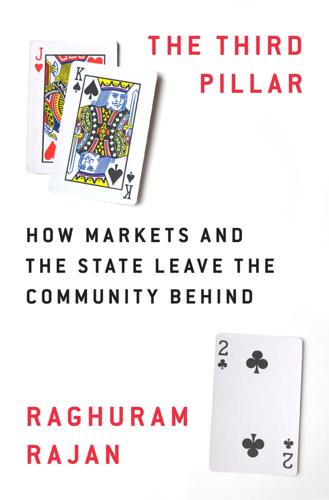
The Third Pillar: How Markets and the State Leave the Community Behind
by
Raghuram Rajan
Published 26 Feb 2019
The most important was antitrust or competition law, which prohibited collusive practices in industry as well as the formation or continuation of corporate structures that might substantially reduce competition. In the choice between protecting property rights and preserving competition, antitrust law came down firmly on the side of competition. One of the biggest initial targets was Rockefeller’s Standard Oil. Between 1902 and 1904, Ida Tarbell, the daughter of one of the oil producers who had been squeezed by Rockefeller in Oil Creek, wrote nineteen articles in McClure’s Magazine exposing “The History of the Standard Oil Company.” Tarbell, a dedicated investigator who pierced through the mass of seemingly impenetrable corporate structures and deals, detailed how Standard Oil had achieved its dominance.
…
As new technology and global markets give firms enormous economies of scale, large firms can get even bigger and more productive as a matter of course. This gives them huge resources to influence the political process, something my colleague and frequent coauthor, Luigi Zingales, writes about in his perceptive book A Capitalism for the People. Writing in the early 1900s, Ida Tarbell was appalled that despite their efficiency, Rockefeller’s managers felt the need to stifle the competition. We should similarly be concerned that despite their productivity and advantages stemming from size and access, some of the largest corporations still try to alter the system to shield themselves from competition or taxes.
…
Brands, American Colossus: The Triumph of Capitalism, 1865–1900 (New York: Anchor Books, 2011). 11. Brands, American Colossus. 12. Ron Chernow, Titan: The Life of John D. Rockefeller, Sr., 2nd ed. (New York: Vintage Books, 2004); Brands, American Colossus. 13. Chernow, Titan. 14. Ida Tarbell, The History of the Standard Oil Company, vol. 1 (Glouchester, MA: Peter Smith, 1904), 65, cited in ibid., chapter 8. 15. Chernow, Titan. 16. Chernow, Titan. 17. Karl Marx, The Poverty of Philosophy, rev. ed. (1847, 1982), 109, cited in John E. Roemer, Free to Lose: An Introduction to Marxist Economic Philosophy (Cambridge, MA: Harvard University Press, 1988), 112. 18.

How to Stop Worrying and Start Living
by
Dale Carnegie
Published 17 May 2009
They warned him he must either retire or die. He retired. But before he retired, worry, greed, fear had already wrecked his health. When Ida Tarbell, America's most celebrated female writer of biographies, saw him, she was shocked. She wrote: "An awful age was in his face. He was the oldest man I have ever seen." Old? Why, Rockefeller was then several years younger than General MacArthur was when he recaptured the Philippines! But he was such a physical wreck that Ida Tarbell pitied him. She was working at that time on her powerful book which condemned the Standard Oil and all that it stood for; she certainly had no cause to love the man who had built up this "octopus".
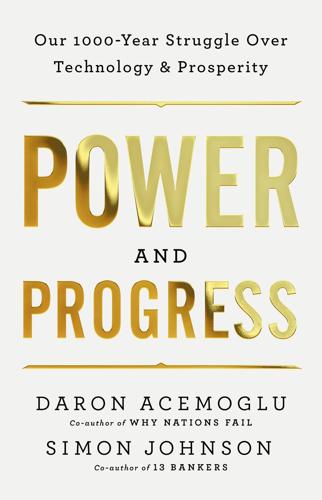
Power and Progress: Our Thousand-Year Struggle Over Technology and Prosperity
by
Daron Acemoglu
and
Simon Johnson
Published 15 May 2023
The transformation was in large part the result of the work of a group of journalists who came to be known as the muckrakers, as well as the writings of other reformers, such as the lawyer and later Supreme Court justice Louis Brandeis. Upton Sinclair’s The Jungle revealed horrible working conditions in the meatpacking industry, and Lincoln Steffens reported on political corruption in many major cities. Perhaps most influential was the work of another muckraker, Ida Tarbell, on Standard Oil. In a series of articles in McClure’s Magazine starting in 1902, she exposed the company’s and Rockefeller’s alleged intimidation, price-fixing, illegal practices, and political shenanigans. Tarbell had personal knowledge of Rockefeller’s business practices. Her father had been an oil producer in western Pennsylvania and was driven out of business by Standard Oil when Rockefeller made a secret deal with local railroads to raise the prices they charged on the oil shipments of the company’s rivals.
…
Progressives deeply believed in the role of expertise in policy making and were instrumental in triggering new professional associations and systematic inquiries of many of the key social issues of the age. Key policy reforms of the age were the outgrowth of the ideas that muckrakers, activists, and reformers had popularized. For example, Sinclair’s exposé directly led to the Pure Food and Drug Act and the Meat Inspection Act. Ida Tarbell’s research and writings inspired the application of the 1890 Sherman Antitrust Act to industrial and railway conglomerates. This was reinforced by passage of the Clayton Act in 1914 and the creation of the Federal Trade Commission for further regulation of monopoly and antitrust action. Progressive pressure was also instrumental in the formation of the Pujo Committee, which investigated misdeeds in the financial industry.
…
The People’s Computer Company is from www.digibarn.com/collections/newsletters/peoples-computer/peoples-1972-oct/index.html; Brandeis is from Baron (1996), which gives the origin as “Arbitration Proceedings, N.Y., Cloak Industry, October 13, 1913.” An earlier discussion of the Progressive movement is in Acemoglu and Johnson (2017). For background on the Progressive movement, see McGerr (2003). “There are two…” is widely attributed to Mark Hanna—for example, by Safire (2008, 237). On Ida Tarbell, see Tarbell (1904). On “Mother” Jones and the march of the mill children, see McFarland (1971). For the work of the Pujo Committee, the breakup of Standard Oil, and early antitrust thinking, see Johnson and Kwak (2010). Redirecting Technological Change. The role of policy to redirect technological choices in energy is discussed in Acemoglu (2021).
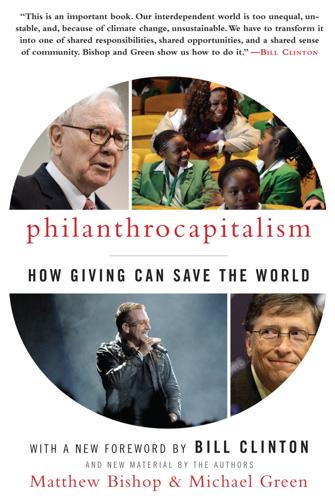
Philanthrocapitalism
by
Matthew Bishop
,
Michael Green
and
Bill Clinton
Published 29 Sep 2008
The philanthropists also adapted this mechanism as a way to create a perpetual charitable legacy while ensuring that the money would be used only for the donor’s intended purpose, even after death. It was this mechanism that Rockefeller revived in 1901 with the creation of the Rockefeller Institute for Medical Research (now Rockefeller University). In 1904, the pioneer of investigative journalism (or “muckraking,” as it was known at the time), Ida Tarbell, published her sledgehammer attack on Rockefeller, The History of the Standard Oil Company, which alleged that his fortune was based on “fraud, deceit, special privilege, gross illegality, bribery, coercion, corruption, intimidation, espionage or outright terror.” Tarbell acknowledged Rockefeller’s generosity, although she gave him no credit for it.
…
Roosevelt, who spouted anti-Mellon rhetoric as he introduced a massive extension of state welfare in the New Deal. While the primary targets of populists during these periods of plutocracy have been the fortunes of the wealthy and the ways they made their money, there has been plenty of controversy over the integrity of their philanthropic efforts. In the early twentieth century, as crusading journalist Ida Tarbell railed against all things Rockefeller, including his charity, foundations were criticized for their support for academic studies of the underlying causes of poverty and racism. In Congress, the Walsh Commission on Industrial Relations, fearful of Rockefeller’s use of his own foundation to investigate the causes of the industrial dispute that in 1914 sparked the “Ludlow massacre” at one of his companies, recommended limits on the size of foundations for fear that otherwise they would “manipulate the economy and . . . influence public opinion.”
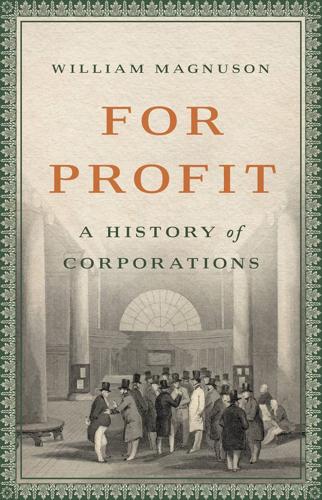
For Profit: A History of Corporations
by
William Magnuson
Published 8 Nov 2022
Its legal department provided free assistance for home purchases, citizenship applications, and debt relief. It had a medical department that by 1920 had twenty rooms, ten doctors, two dentists, two pharmacists, and an anesthetist. Because many of Ford’s workers were immigrants, the company established a language school to teach English. Fordism even won over famous muckraker Ida Tarbell, who called his plan “a thoroughly worthwhile and deeply human method.” She concluded, “The truth is the Sociological Department at Ford’s seems to hate to give up a man as much as the Sales Department hates to give up an order.”33 Ford’s view of himself as the savior of the common man made it hard for him to sympathize when workers occasionally complained.
…
Lewis and Laurence Goldstein, eds., 1983). 31. Anthony Harff, Reminiscences 18–19 (Benson Ford Research Center, 1953). 32. John A. Fitch, “Ford of Detroit and His Ten Million Dollar Profit Sharing Plan,” The Survey, Feb. 7, 1914, 547–48. 33. James O’Connor, Reminiscences 31 (Benson Ford Research Center, 1955); Ida Tarbell, New Ideals in Business: An Account of Their Practice and Their Effect upon Men and Profits 129 (1917). 34. Ford, My Life and Work 120; “‘Shun Unions,’ Ford Advises Workers,” New York Times, Feb. 20, 1937; F. Raymond Daniell, “Ford Confidently Faces a Labor Duel,” New York Times, Oct. 17, 1937; Frank Cormier and William J.
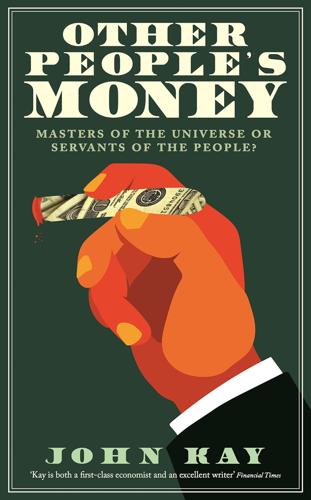
Other People's Money: Masters of the Universe or Servants of the People?
by
John Kay
Published 2 Sep 2015
But their immense personal wealth was as much the product of financial manipulation as of productive activity. At the beginning of the twentieth century the power of the robber barons was abruptly checked. The ‘muckrakers’ – hostile journalists – exposed some of the excesses of financial capitalism directed towards industrial monopoly. Ida Tarbell engaged in a sustained campaign against Rockefeller’s Standard Oil.29 Upton Sinclair’s novel The Jungle (1906), which described Midwest meat-packing plants, is still a literary classic.30 The term ‘muckraker’ was coined – not disapprovingly – by Theodore Roosevelt, a Republican who had unexpectedly become president following the assassination in 1901 of the benignly probusiness William McKinley.
…
The social tensions that had been suppressed when consumption was growing faster than incomes were no longer contained. Public opinion turned against banking and finance, reflected in the Occupy movement and the surge in popularity of fringe political movements. A century after Upton Sinclair and Ida Tarbell the tradition of the muckraker was revived. A new generation of journalists sought to expose corporate and – especially – financial malpractice. When the internet journalist Matt Taibbi described Goldman Sachs as ‘a giant vampire squid, sucking money from wherever it finds it’,45 the description quickly went viral.
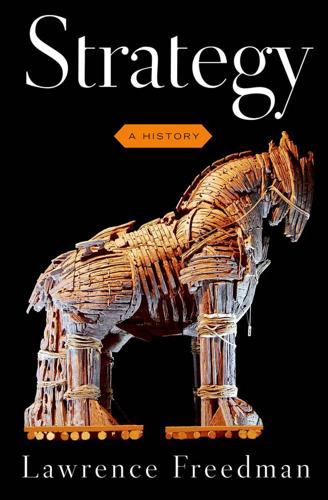
Strategy: A History
by
Lawrence Freedman
Published 31 Oct 2013
Rockefeller: The Heroic Age of American Enterprise, 2 vols. (New York: Charles Scribner’s Sons, 1940). 4. Ibid., 433. 5. Richard Hofstadter, The Age of Reform (New York: Vintage, 1955), 216–217. 6. The book made up of her articles is still in print: Ida Tarbell, The History of the Standard Oil Company (New York: Buccaneer Books, 1987); Steven Weinberg, Taking on the Trust: The Epic Battle of Ida Tarbell and John D. Rockefeller (New York: W. W. Norton, 2008). 7. Yergin, The Prize, 93. 8. Ibid., 26. 9. Chernow, Titan, 230. 10. Steve Watts, The People’s Tycoon: Henry Ford and the American Century (New York: Vintage Books, 2006), 16; Henry Ford, My Life and Work (New York: Classic Books, 2009; first published 1922). 11.
…
Planning in the form of a predetermined schedule, clear instructions, and constant supervision would bring great rewards: “Errors are prevented instead of being corrected. The terrible waste of delays and accidents is avoided. Calculation is substituted for guess; demonstration for opinion.”9 Brandeis was by no means the only figure in the progressive movement to see Taylor as the answer to a rationalist’s dream. The investigative journalist Ida Tarbell praised Taylor as one of the creative geniuses of the time, contributing to “genuine cooperation and juster human relations.”10 Science offered a way to circumvent the powerful conflicts that threatened to tear industrial society apart and a way to promote the general good out of the tangle of clashing sectional interests.
…
Meanwhile, with remarkable attention to detail, using superior intelligence and communications, and keeping track of markets and competitors on an increasingly global scale, Standard Oil kept its prices down and its hold on the market secure. Through all this it “treated the federal government as a meddlesome, inferior power.”4 In the end, Rockefeller’s nemesis proved to be a writer called Ida Tarbell, whom we met in the previous chapter as a champion of Frederick Taylor. As it happened, her father had struggled in the early oil business against Standard Oil and suffered as a result. This gave an edge to her reporting. The opportunity came because she was on the staff of McClure’s Magazine, a progressive “muckraking” journal, which had decided to make the trusts its main target.5 Tarbell got a break with an introduction to one of Rockefeller’s lieutenants, who became a key source of information.
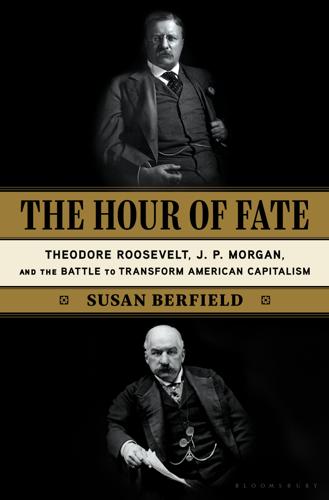
The Hour of Fate
by
Susan Berfield
He could wheedle, bargain, and bully, but he still had to wait for Congress to vote on legislation. And then he had to trust the courts to enforce it. The bill proposed7 by Stephen Elkins, a Republican senator from West Virginia, to end railroad rebates faced little resistance. The railroads’ practice of favoring large companies had infuriated farmers and small business owners for years. Ida Tarbell’s groundbreaking investigation into Standard Oil’s power and corruption exposed how crucial obtaining those discounts—called “Rockefeller’s rebates”—was to the company’s success. By 1903, though, big customers demanded cash rebates that cost the railroads millions. They were ready to back a government solution to an expensive problem they couldn’t fix on their own.
…
It was a vague statement open to interpretation but good enough for Archbold. He gave Bliss the money, in thousand-dollar bills. Roosevelt was furious. He accepted corporate donations, however large, as long as they didn’t seem to compromise him. But taking money from Standard Oil could. Once Ida Tarbell had revealed its economic and political power, people expected legal scrutiny to follow. It would begin with Cortelyou’s Department of Commerce and Labor. “We cannot73 under any circumstances afford to take a contribution which can be even improperly construed as putting us under an improper obligation,” Roosevelt wrote to Cortelyou on October 26.
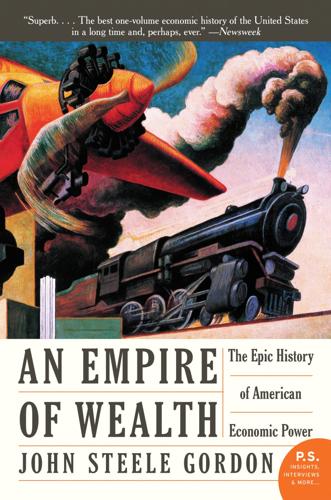
An Empire of Wealth: Rise of American Economy Power 1607-2000
by
John Steele Gordon
Published 12 Oct 2009
It is perhaps a coincidence that Rockefeller and Gates were just about the same age, their early forties, when they became household names and the living symbols of a new and, to some, threatening economic structure. The image of Standard Oil that remains even today in the American folk memory was the product of a number of writers and editorial cartoonists who often had a political agenda to advance first and foremost. The most brilliant of these was Ida Tarbell, whose History of the Standard Oil Company, first published in McClure’s magazine in 1902, vividly depicted a company ruthlessly expanding over the corporate bodies of its competitors, whose assets it gobbled up as it went. That is by no means a wholly false picture, but it is a somewhat misleading one.
…
Sometimes, especially if the owners of the refinery being acquired had executive talents that Standard wished to make use of, the price was a generous one. Further, the seller had the choice of receiving cash or Standard Oil stock. Those who chose the latter—and there were hundreds—became millionaires as they rode the stock of the Standard Oil Company to capitalist glory. Those who took the cash often ended up whining to Ida Tarbell. None of this, of course, was illegal, and that was the real problem. In the late nineteenth century people such as Rockefeller, Flagler, Carnegie, and J. P. Morgan were creating at a breathtaking pace the modern corporate economy, and thus a wholly new economic universe. They were moving far faster than society could fashion, through the usually slow-moving political process, the rules needed to govern that new universe wisely and fairly.

Animal Spirits: The American Pursuit of Vitality From Camp Meeting to Wall Street
by
Jackson Lears
The liberal government was corrupt, ineffectual, and ripe for takeover by a man promising national regeneration and a return to the greatness of the Roman Empire. Mussolini seized power in 1923, and soon won an appreciative audience on both sides of the Atlantic, including among American journalists. Mussolini was a paragon of popular vitalism, a fount of energy that was fundamentally sexual. For Ida Tarbell, the Progressive muckraker famous for her crusade against Standard Oil, Mussolini was irresistible—“a despot with a dimple” who “kissed my hand in the gallant Italian fashion.” His amorous escapades titillated prurient readers but also, as Alice Rohe noted, served political ends: “Duce knows how to get what he wants from women, whether it is a grand passion or a grand propaganda.”
…
“thirst for immediate results”: Ibid., 29. “glorifying of national particularism”: Ibid., 52. “habit of energy and boldness”: Filippo Marinetti, “Futurist Manifesto,” cited in Alastair Hamilton, The Appeal of Fascism: A Study of Intellectuals and Fascism, 1919–1945 (1971), 3. “despot with a dimple”: Ida Tarbell, All in the Day’s Work (1939), 380–84. “Duce knows how to get”: Alice Rohe, cited in “Mussolini, Lady Killer,” Literary Digest (July 31, 1937), 37. “mental perverts”: Kenneth Roberts, “The Ambush of Italy,” Saturday Evening Post, Feb. 24, 1923, 34–38. “built like a steel spring”: John Gunther, Inside Europe (1938), 194.
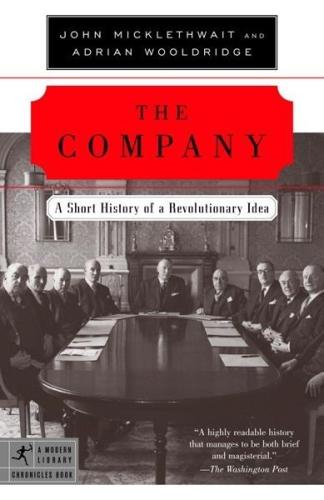
Company: A Short History of a Revolutionary Idea
by
John Micklethwait
and
Adrian Wooldridge
Published 4 Mar 2003
Politicians also slowly succumbed to popular pressure to break up the empires of the “malefactors of great wealth.” The 1890 Sherman Antitrust Act broke new ground by defining monopolies but failed to set out many ways of punishing or preventing them (and was used against the unions). Public opinion demanded more. In 1902, Ida Tarbell, the first great muckraking journalist, began a nineteen-part exposure of Standard Oil in McClure’s magazine, arguing that the company’s rise had been accomplished by “fraud, deceit, special privilege, gross illegality, bribery, coercion, corruption, intimidation, espionage or outright terror.” Meanwhile, up in Boston, “the people’s attorney,” Louis Brandeis, skewered Morgan over his stewardship of the New Haven Railroad.

A Pipeline Runs Through It: The Story of Oil From Ancient Times to the First World War
by
Keith Fisher
Published 3 Aug 2022
After a year of weaving around Standard Oil’s obstructive land purchases, wrestling with the Standard-allied railways in court over rights of way, and running the gauntlet of repeated armed conflict with rail workers, the United States Pipe Line Co. eventually, in mid-1893, completed a 200-mile parallel kerosene and crude pipeline from the Oil Region to Wilkes-Barre, Pennsylvania, from where the Central Railroad of New Jersey transported the oil to the seaboard.126 Ida Tarbell, a popular critic of Standard Oil and supporter of the independents, recognized that ‘a new advance had been made in the oil industry – the most substantial and revolutionary since the day the Tidewater demonstrated that crude oil could be pumped over the mountains’.127 Simultaneously, William L.
…
The nation, that is to say, organized as the one great business corporation in which all other corporations were absorbed.’240 Along with economic depression and labour unrest – which Secretary of State Walter Gresham saw as ‘symptoms of revolution’ – the 1890s saw the rise of ‘muckraking’ investigative journalism that sought to reveal to popular view the more troubling social and political aspects of modern industrial capitalism. One of the most prominent of these exposés was by the journalist Ida Tarbell, who had grown up, in the 1860s, in the heart of the Oil Region surrounded by the pollution, explosions and flames of Rouseville. Her father had applied his carpentry skills to make sought-after wooden oil-storage tanks, and she remembered how he would rail against the encroaching Standard Oil monopoly.241 From 1902 to 1904 McClure’s Magazine published a series of Tarbell’s articles that made available to the general reader her in-depth and highly critical study of the rise to dominance of Standard Oil, now the country’s largest corporate behemoth alongside U.S.
…
A., Texas Oil & Gas since 1543 (Houston, TX: Gulf Publishing Co., 1939). Wawro, Geoffrey, Warfare and Society in Europe, 1792–1914 (London: Routledge, 2000). Webber, William Hosgood Young, Town Gas and Its Uses (London: Archibald Constable & Co., 1907). Weinberg, Steve, Taking on the Trust: The Epic Battle of Ida Tarbell and John D. Rockefeller (New York: W. W. Norton & Co., 2008). Weinstein, James, Ambiguous Legacy: The Left in American Politics (New York: New Viewpoints, 1975). ——, The Corporate Ideal in the Liberal State: 1900–1918 (Boston, MA: Beacon Press, 1968). Weller, Olivier, Alexa Dufraisse and Pierre Pétrequin, eds., Sel, eau et forêt d’hier à aujourd’hui (Besançon: Presses universitaires de Franche-Comté, 2008).
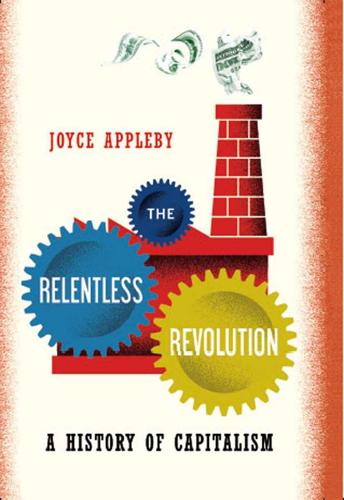
The Relentless Revolution: A History of Capitalism
by
Joyce Appleby
Published 22 Dec 2009
In fact they facilitated central management. By 1896 Rockefeller was worth some two hundred million dollars, twice the fortune of Vanderbilt at his death twenty years earlier. Rockefeller’s business tactics had not escaped critical notice. A devout Baptist, he recoiled at the hardhearted reputation he had acquired, especially the way Ida Tarbell depicted him in a popular muckraking magazine series. Following the advice of a public relations consultant, Rockefeller increased his giving to Baptist churches and began funding medical schools. Having embarked on a new career as a philanthropist at the age of fifty-seven, Rockefeller sponsored the idea of matching funds, where he would contribute to a project only if others did.
…
Those vivid descriptions stuck in readers’ minds. Congress passed the Meat Inspection Act and a Pure Food and Drug Act the same year as The Jungle’s publication in 1906. States also began to legislate to protect workingwomen and children. Civil service reform curbed the rampant municipal corruption of this so-called Gilded Age. In 1902 Ida Tarbell enthralled the reading public month after month with a serialized history of Standard Oil, a tale every bit as fascinating as the adventures of Captain Kidd, with Rockefeller operating with the same moral compass as the pirate had. The public gained access to the shenanigans, shady deals, and sinister manipulation that went into Rockefeller’s oil monopoly.
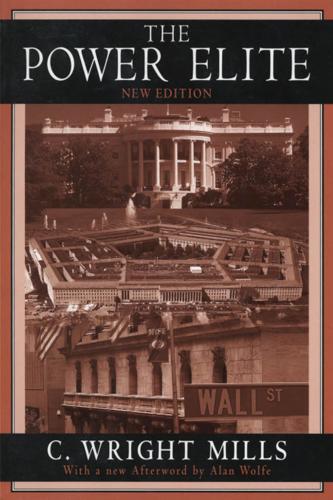
The Power Elite
by
C. Wright Mills
and
Alan Wolfe
Published 1 Jan 1956
Lest all this be thought merely a whimsical fad, not truly reflecting the ideological desert and anxiety of the executive world, consider sympathetically the style of conduct and the ideology of Owen D. Young—late president of General Electric—who serves well as the American prototype of modern man as executive. In the early twentieth century, we are told by Miss Ida Tarbell, the typical industrial leader was a domineering individual, offensive in his belief that business was essentially a private endeavor. But not Owen Young. During World War I and the ’twenties, he changed all that. To him, the corporation was a public institution, and its leaders, although not of course elected by the public, were responsible trustees.
…
Of the remainder, girls’ schools, whose job is also relatively well defined, accounted for almost 30,000 more. Forty thousand odd were in co-educational schools, largely day schools. Some 20,000 were in the schools for boys, the group that particularly desires self-justification.’26 * See SEVEN: The Corporate Rich. * ‘… In his inside circle of business and legal associates,’ Ida Tarbell has noted of Owen D. Young, ‘while everyone agrees that he would make a “great president,” there is a feeling that he is too valuable a public servant where he is, to be, as one man put it to me, “spoiled by the presidency” … He has other admirers that intimate as much: Will Rogers who wants to keep him “to point to with pride”; Dr.
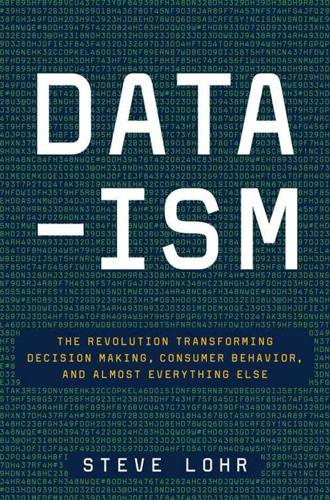
Data-Ism: The Revolution Transforming Decision Making, Consumer Behavior, and Almost Everything Else
by
Steve Lohr
Published 10 Mar 2015
Taylorism was embraced by some of the leading intellectuals of the Progressive Era. In 1910, Louis Brandeis, “the People’s Lawyer” and future Supreme Court justice, wrote, “Of all the social and economic movements with which I have been connected, none seems to me to be equal to this in its importance and hopefulness.” Ida Tarbell, the journalist whose investigative pieces in McClure’s magazine helped pave the way for the breakup of the Standard Oil trust, was another champion of Taylor’s techniques. Taylorism was going to replace hunch and habit with scientific precision. In his classic biography of Taylor, Robert Kanigel writes that Taylorism promised “not just science, but science wrapped in the flag of mathematics.”

Assassination Vacation
by
Sarah Vowell
Published 28 Mar 2005
Calling his agenda the “square deal,” he achieved an unprecedented happy medium between the demands of labor and capital, settling a coal strike in 1902 in which he forced the owners to raise wages and stick to a maximum nine-hour workday, but prevented the workers from forming a union. (Nobody was entirely happy, but compared to the bloody strikes of the 1890s, it was an innovation in that nobody got killed.) Roosevelt also coined the term “muckrakers” to describe the crusading journalists like Ida Tarbell, who had taken on the monolith of Standard Oil, and Upton Sinclair, whose book The Jungle detailed the horrors of the meatpacking industry. Roosevelt acted on the abuses they brought to light, pursuing dozens of antitrust suits and signing into law the Pure Food and Drug Act of 1906. I think Roosevelt’s soft spot for the underdog in Washington was the influence of New York City — his aristocratic upbringing here and its resultant noblesse oblige.
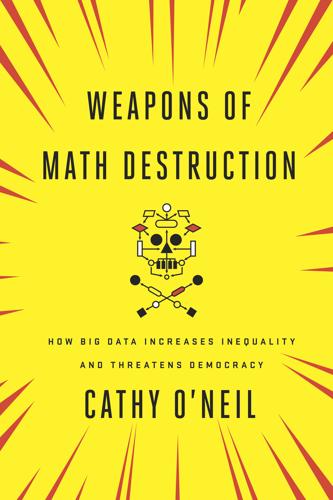
Weapons of Math Destruction: How Big Data Increases Inequality and Threatens Democracy
by
Cathy O'Neil
Published 5 Sep 2016
Armour and Co. dispatched cans of rotten beef by the ton to US Army troops, using a layer of boric acid to mask the stench. Meanwhile, rapacious monopolists dominated the railroads, energy companies, and utilities and jacked up customers’ rates, which amounted to a tax on the national economy. Clearly, the free market could not control its excesses. So after journalists like Ida Tarbell and Upton Sinclair exposed these and other problems, the government stepped in. It established safety protocols and health inspections for food, and it outlawed child labor. With the rise of unions, and the passage of laws safeguarding them, our society moved toward eight-hour workdays and weekends off.
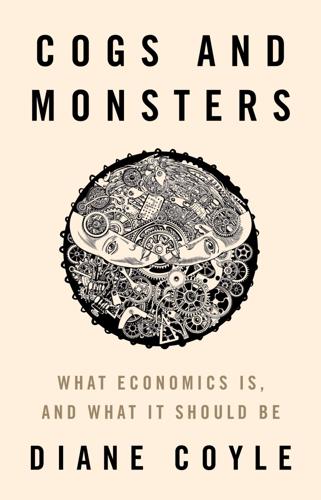
Cogs and Monsters: What Economics Is, and What It Should Be
by
Diane Coyle
Published 11 Oct 2021
The more successful, the larger, the more profitable and powerful the incumbents, the harder it is to maintain competition. Every so often in democracies, the accretion of corporate interest is swept away on a tide of popular indignation. The classic instance is the trust-busting and breakup of giants such as Standard Oil in the United States in the 1910s, thanks to the investigations of journalist Ida Tarbell. The period of legal activism against big business was succeeded by populism and anger as the 1929 stock market crash and economic downturn collided with high levels of inequality and Jazz Age conspicuous consumption. The present context is disturbingly similar. A number of recent reports have concluded that the digital sector, dominated by a handful of titanic US companies, needs shaking up to enhance competition (Crémer, Montjoye, and Schweitzer 2019; Furman et al. 2019; Scott-Morton et al. 2019).
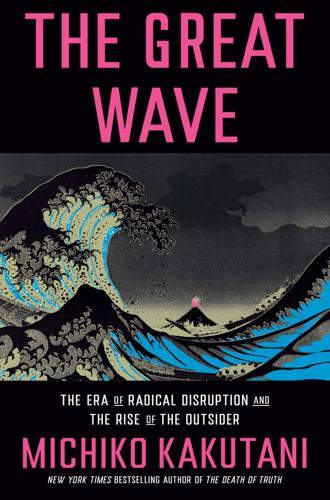
The Great Wave: The Era of Radical Disruption and the Rise of the Outsider
by
Michiko Kakutani
Published 20 Feb 2024
Labor unions and the Farmers’ Alliance gained more support as inequities mounted; during the last two decades of the nineteenth century, there were an estimated twenty thousand strikes and lockouts and increasingly violent confrontations with police and company enforcers. Investigative journalism by writers like Ida Tarbell, Upton Sinclair, Lincoln Steffens, and Jacob Riis shined a light on the sufferings of the poor and disenfranchised. Their reporting also focused public attention on political corruption and unfair business practices and spurred the participation of middle-class Americans in reform efforts on the municipal and state levels.
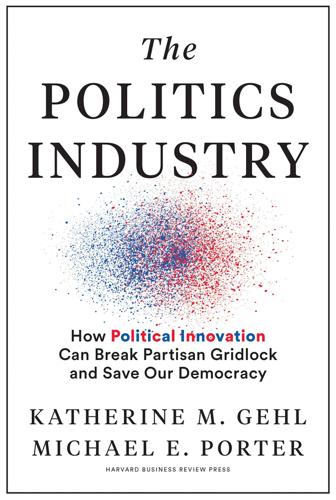
The Politics Industry: How Political Innovation Can Break Partisan Gridlock and Save Our Democracy
by
Katherine M. Gehl
and
Michael E. Porter
Published 14 Sep 2020
McClure, 1904) declared that even more to blame than the political bosses were the members of the public who benefitted from the corruption and, more shameful still, those who did not benefit but remained apathetic, complacent, or cynical. For more, see Frank Norris, The Octopus: A Story of California (Leipzig, Germany: Bernhard Tauchnitz, 1901); Ida Tarbell, The History of the Standard Oil Company (Mineola, NY: Dover Publications, 1901); Upton Sinclair, The Jungle (New York: Doubleday, 1904); Lincoln Steffens, The Shame of the Cities (Bloomingdale, IL: McClure, Philips, and Co, 1904); David Graham Phillips, “The Treason of the Senate,”Cosmopolitan, 1906.
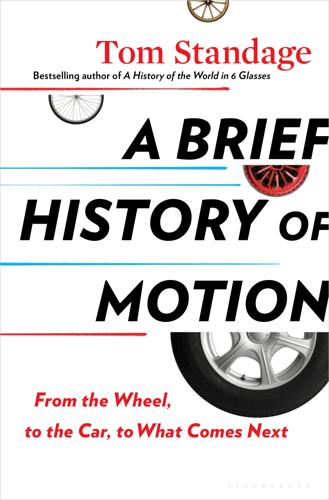
A Brief History of Motion: From the Wheel, to the Car, to What Comes Next
by
Tom Standage
Published 16 Aug 2021
In part this was because Standard Oil and its allies, keen to protect their own sales, argued that a repeal would cause an increase in drunkenness. But in 1906 proponents of repeal finally achieved a breakthrough. A series of articles about the anticompetitive practices of Standard Oil published by Ida Tarbell, a muckraking journalist, prompted the government to investigate. And President Theodore Roosevelt indicated his support for repeal as a means of weakening the oil monopoly. The “Free Alcohol” law passed in May 1906 abolished the excise on denatured alcohol from January 1, 1907. Hopes were high that this would lead to a surge in alcohol production.
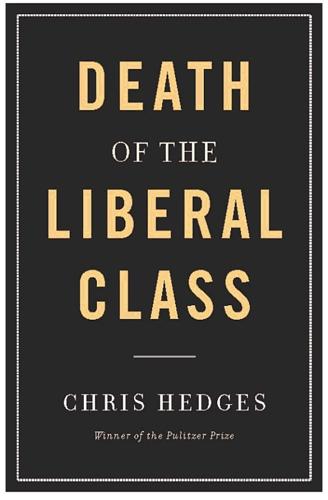
Death of the Liberal Class
by
Chris Hedges
Published 14 May 2010
The Reverend Josiah Strong’s declamation “that Christ came not only to save individual souls, but society” turned churches into temperance societies, labor halls, and soup kitchens. Salvation could be achieved through human agencies. The Social Gospel secularized traditional Christian eschatology and fused it with the utopian visions of material progress embraced by the wider liberal class. The years before World War I had offered hope to liberal reformers. It was Ida Tarbell who in 1902 exposed the ruthless business practices of John D. Rockefeller and Standard Oil in McClure’s Magazine. Her series, later published as a book, fueled a public outcry against Standard Oil. It was an important factor in the U.S. government’s antitrust actions against the Standard Oil Trust, which eventually led to its breakup in 1911.
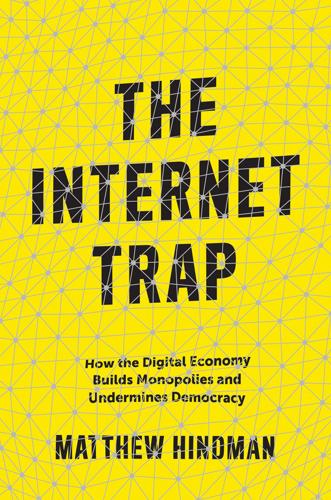
The Internet Trap: How the Digital Economy Builds Monopolies and Undermines Democracy
by
Matthew Hindman
Published 24 Sep 2018
Your love, support, and patience are a constant gift, and they made this book possible. March 2018 Washington, D.C. THE INTERNET TRAP 1 Rethinking the Attention Economy The American Beauty rose can be produced in its splendor and fragrance only by sacrificing the early buds which grow up around it. —John D. Rockefeller, Jr. on trusts, quoted in Ida Tarbell’s The History of the Standard Oil Company In early 2000, Google conducted one of its first online experiments. The result was a disaster. Google’s mistake started with a simple question: How many results should it return per search query? The young company had always given users ten results, because that was what previous leader AltaVista had done.
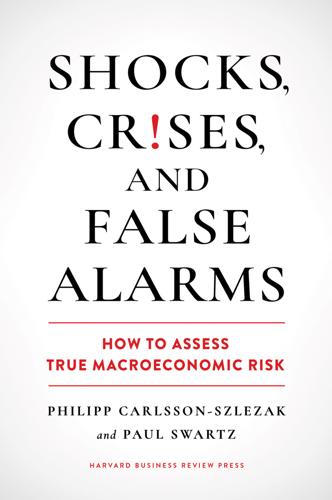
Shocks, Crises, and False Alarms: How to Assess True Macroeconomic Risk
by
Philipp Carlsson-Szlezak
and
Paul Swartz
Published 8 Jul 2024
US Government Accountability Office (GAO), “Drones: FAA Should Improve Its Approach to Integrating Drones into the National Airspace System,” GAO-23-105189, January 26, 2023, https://www.gao.gov/products/gao-23-105189. 5. Big regulatory resets in US history were driven by popular backlash, typically stoked by journalists and activist writers. Ida Tarbell’s work contributed to the breakup of Standard Oil (1911), Upton Sinclair paved the way for the creation of the FDA to regulate food safety (1906), and Rachel Carson’s work is associated with the creation of the EPA (1970). In each case, regulators responded rather than drove the agenda. Philipp Carlsson-Szlezak and Paul Swartz, “Popular Outrage, not Economics, Will Determine the Fate of Big Tech,” Fortune, August 18, 2021, https://fortune.com/2021/08/18/big-tech-breakup-antitrust-popular-outrage-facebook-google-standard-oil-microsoft/.
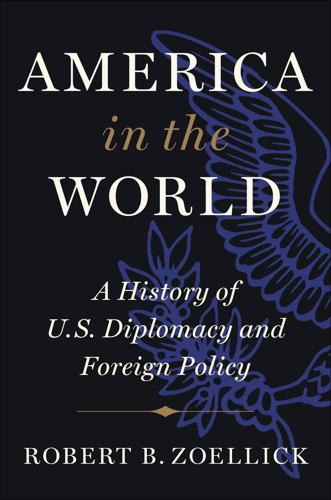
America in the World: A History of U.S. Diplomacy and Foreign Policy
by
Robert B. Zoellick
Published 3 Aug 2020
Yet he preferred to face problems when they ripened. In 1915, he wrote Edith Galt that, “I never had had any patience with ‘ifs’ and conjectural cases. My mind insists always upon waiting until something actually does happen and then discussing what is to be done.”7 In 1916, the president told the journalist Ida Tarbell, “It bores me to have men waste my time in general terms. What I want to know is how it is to be done. I am never interested until the point is reached….I am not interested until a practical method is proposed—that is, I suppose that in government I am a pragmatist: my first thought is, will it work?”
…
A day later, a deranged man assassinated the president.14 Neither Teddy Roosevelt nor William Howard Taft took much interest in tariff policy. The party politics were too dangerous. Taft worked to enact a reciprocity agreement with Canada, but Canadians rejected the accord in a 1911 referendum. Trade and Progressivism Progressives pressed the trade debate in new directions. Ida Tarbell, the muckraking journalist, decried the higher prices paid by working families. She argued that tariffs imposed an unfair tax burden on consumers of shoes, clothes, food, and coal. Her colorful accounts revealed that tariffs were the grease of corrupt politics and special interests. Others contended that tariff distortions promoted monopolies and industrial concentration.15 Woodrow Wilson coupled the Progressives’ call for fairness and reformed government with Democratic Southerners’ long opposition to high tariffs.
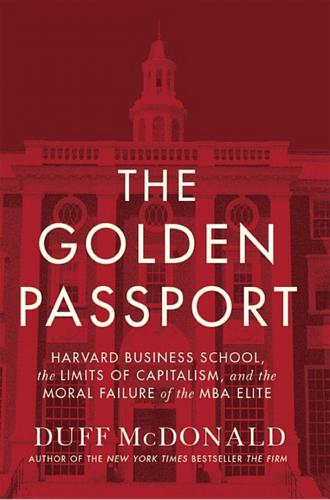
The Golden Passport: Harvard Business School, the Limits of Capitalism, and the Moral Failure of the MBA Elite
by
Duff McDonald
Published 24 Apr 2017
The draw of Taylorism was that it might help bring about a value-neutral, or scientific, solution to what was at that point becoming a national emergency of sorts, the so-called labor problem. If everyone were paid precisely what they were worth, then no one had cause for complaint. Labor would get its due; management would solve a problem. Win-win. Even muckraker Ida Tarbell, no fan of management, bought into the Taylor ethos, going so far as to describe him as a “creative genius.” Taylor’s heyday ended just five years after he became HBS’s marquee attraction. In 1914, when his followers screwed up a time study at an armaments plant, it led to a strike, which led to congressional hearings, which led to the U.S. government effectively banning time study of work at federally owned plants.
…
“The economic power in the hands of the few persons who control a giant corporation is a tremendous force which can harm or benefit a multitude of individuals, affect whole districts, shift the currents of trade, bring ruin to one community and prosperity to another,” wrote Adolf Berle and Gardiner Means in The Modern Corporation and Private Property, their seminal portrait of the corporate economy of the time.2 While class conflict was still front-and-center in the national debate, that debate had at least become a little less heated than it had been in previous decades. “The eighties dripped with blood, and men struggled to get at causes, to find corrections, to humanize and socialize the country,” Ida Tarbell wrote in her 1939 memoir, “for then as now there were those who dreamed of a good world although at times it seemed to them to be going mad.”3 In 1910, those men were gaining power: that year, fifteen unionists were elected to Congress. While Social Darwinism had reigned during the Gilded Age, the Progressives were ascendant in the mid-teens.
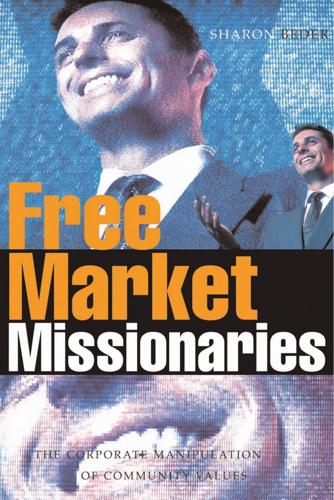
Free Market Missionaries: The Corporate Manipulation of Community Values
by
Sharon Beder
Published 30 Sep 2006
So-called muckraking journalists effectively exposed the corruption, exploitation and inhuman working conditions by which the majority of the great corporations had prospered. Magazines such as McClures, Everybodys, Cosmopolitan, Colliers and The American carried exposés of big business activities. Authors such as Upton Sinclair, Ida Tarbells, Tom Lawson, Gustavus Myers and others revealed the realities of the power of these corporations.7 The respect once commanded by those who owned and headed these corporations was progressively eroded as the ruthless exploitation involved in building up THE FREE MARKET GOSPEL 3 their empires was disclosed.
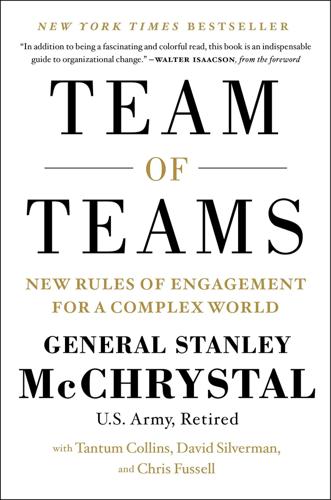
Team of Teams: New Rules of Engagement for a Complex World
by
General Stanley McChrystal
,
Tantum Collins
,
David Silverman
and
Chris Fussell
Published 11 May 2015
Biographer and historian Robert Kanigel writes that “by the late 1920s, it could seem that all of modern society had come under the sway of a single commanding idea: that waste was wrong and efficiency the highest good, and that eliminating one and achieving the other was best left to the experts.” Journalist Ida Tarbell went so far as to argue, “No man in the history of American industry has made a larger contribution to genuine cooperation and juster human relations than did Frederick Winslow Taylor. He is one of the few creative geniuses of our time.” • • • In the decades since, Taylor’s star has dimmed.
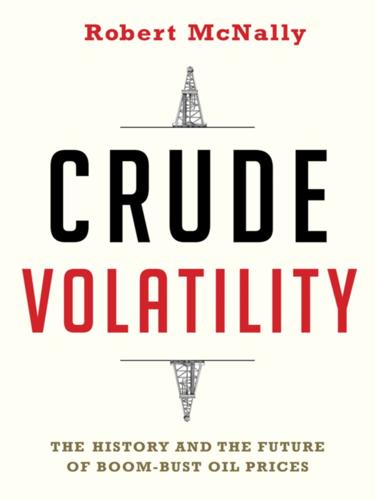
Crude Volatility: The History and the Future of Boom-Bust Oil Prices
by
Robert McNally
Published 17 Jan 2017
In periods of oversupply, he could raise storage costs or limit storage availability, leaving hapless drillers with little choice but to throttle back production. FIGURE 1.2 Annual ranges of monthly U.S. crude oil prices, 1859–1911. Sources: Derrick’s, vols. I–IV; API, Petroleum Facts and Figures (1959). © The Rapidan Group. Ida Tarbell described Rockefeller’s influence over crude oil prices as at times dictatorial. “[B]y virtue of [Standard’s] monopoly of the business of refining and transportation of oil,” Tarbell concluded, the trust “had been at times almost the only buyers in the market, and at such times had been enabled to dictate and establish a price for crude oil far below its actual value.”116 As biographer Ron Chernow noted, Tarbell overstates Rockefeller’s influence: “We must retire one common canard about Rockefeller: He didn’t set crude oil prices through blanket edicts.”117 It is impossible to know if technology, law, or patterns of oil production and demand would have developed toward a more stable oil business in the absence of Rockefeller.

What’s Your Type?
by
Merve Emre
Published 16 Aug 2018
Although he had also graduated from Michigan Agricultural College, Baker had long since abandoned the silence and sterility of the laboratory to get his hands dirty on the front lines of investigative journalism. As a staff writer at McClure’s Magazine, he had made his reputation as one of the nation’s fiercest crusaders for social justice—a “muckraker,” Teddy Roosevelt would sneer—and now, along with his fellow muckrakers Ida Tarbell and Lincoln Steffens, he had purchased American Magazine, a culture and lifestyle publication that had great need for new, outspoken columnists. Upon meeting Isabel and hearing Katharine expound on her theories of baby training, he felt inspired to offer her a steady job. “It occurs to me that you might be willing to give us some idea of your methods in training Isabel,” he wrote to Katharine.
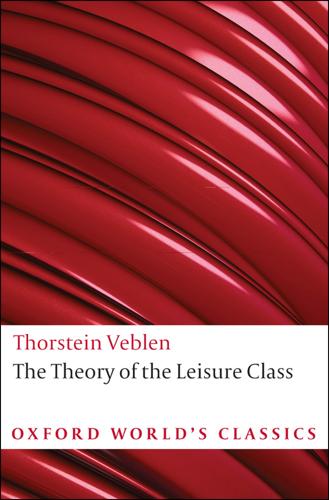
The Theory of the Leisure Class
by
Thorstein Veblen
Published 10 Oct 2007
Instead, Veblen’s negative remarks anticipate the attacks launched in 1918 by Cyril Briggs, editor of the radical black journal The Crusades, against ‘the blond beast’—the bloodthirsty, ape-like predator of the ‘mongrel’ European race. The Theory of the Leisure Class is not, however, a ‘penny-dreadful’ piece of sensationalism determined to entertain the general reading public through calculated shock-values. Nor does it fall under the category of the (excellent) journalistic exposés of the era, such as Ida Tarbell’s scorching indictment of the Standard Oil Company and John D. Rockefeller’s rapacious rise to power. Veblen’s book follows the model of scholarly analysis that casts its intelligence over an entire social system. In a tone that is sharp but not shrill, Veblen names no names and singles out no specific villains.

Transaction Man: The Rise of the Deal and the Decline of the American Dream
by
Nicholas Lemann
Published 9 Sep 2019
Back in 1832, when Andrew Jackson vetoed the charter of the Second Bank of the United States (a precursor to the Federal Reserve Board), he gave this justification: “When the laws undertake … to grant titles, gratuities, and exclusive privileges, to make the rich richer and the potent more powerful, the humble members of society—the farmers, mechanics, and laborers—who have neither the time nor the means of securing like favors to themselves, have a right to complain of the injustice of their Government.” Decades later, during his three unsuccessful campaigns as the Democratic Party’s presidential nominee, William Jennings Bryan often sounded this note. So did muckraking economic crusaders like Henry Demarest Lloyd and Ida Tarbell, the scourges of the Standard Oil trust. So did Woodrow Wilson, under the tutelage of Louis Brandeis, in his successful campaign for president in 1912. So, occasionally, did Franklin Roosevelt. But after the Second World War, this kind of economic liberalism had almost disappeared from liberal thinking and national political rhetoric.

Billionaire, Nerd, Savior, King: Bill Gates and His Quest to Shape Our World
by
Anupreeta Das
Published 12 Aug 2024
At the same time, Gates portrayed the decision as an efficient one that customers could use easily. The strong-arm tactics used by Rockefeller, America’s first billionaire, caught the attention of the public, particularly after a 19-part magazine exposé about the corrupt and unethical practices of Standard Oil by the investigative journalist—called a “muckraker”—Ida Tarbell. Microsoft too was accused of strong-arming competitors and rapacious conduct and called the “Standard Oil of the Information Age.” Microsoft pushed back on the comparisons. Its practices were not monopolistic, Microsoft argued, because it was defending intellectual property. Unlike petroleum, which was a scarce resource because there was a finite amount of it in the world, there were no limits to IP.
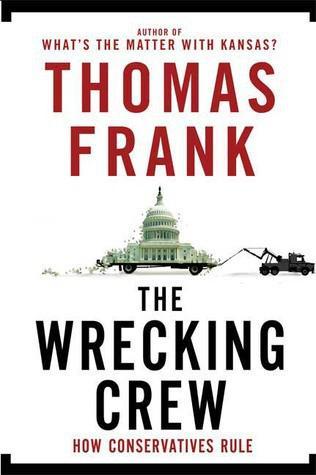
The Wrecking Crew: How Conservatives Rule
by
Thomas Frank
Published 5 Aug 2008
Frank captures a quality of exuberant bullying in those of his conservative subjects he knows well enough to identify individually, rather than categorically.” —The New Yorker “Compelling.” —The Baltimore Sun “Frank’s new book is a more determined work of exposé, in the muckraking tradition of Lincoln Steffens and Ida Tarbell. Frank writes with the delighted outrage of an authentic satirist. The book repays reading just for its portrait of Abramoff. . . . Entertaining.” —The New Republic “Readers entranced by the vivid prose and sweeping themes of Kansas won’t be disappointed.” —The American Prospect “Entertaining and engaging.”
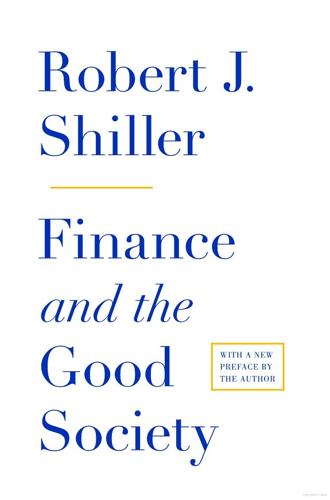
Finance and the Good Society
by
Robert J. Shiller
Published 1 Jan 2012
But the desire, if followed through logically, seems to put us in a lifelong loop in which we do that which often does not appear inspiring, with no clear moral vindication, no clear end, no final judgment. John D. Rockefeller Sr., himself the son of a small-time huckster and bigamist, was a ruthless, take-no-prisoners aggressor in his business life. In her 1904 book The History of the Standard Oil Company, Ida Tarbell made a scandal of his business practices.7 But in his later life he became a philanthropist in the mold of Andrew Carnegie. His actions in business may have appeared sleazy, but his life had a noble conclusion, including his founding of the Rockefeller Foundation, the University of Chicago, and Rockefeller University.
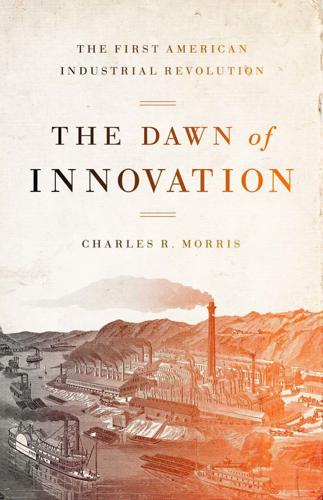
The Dawn of Innovation: The First American Industrial Revolution
by
Charles R. Morris
Published 1 Jan 2012
But the broader story that Rockefeller’s Standard Oil won its position by “secret railroad rebates” and other illegal monopolistic practices has little basis. The United States had no laws against railroad rebates or monopolies when Rockefeller was building his business, and claims by the contemporary muckraker Ida Tarbell and many subsequent Rockefeller biographers that they were “against the common law” are not supported even in the Supreme Court’s 1911 decision breaking up the company. John D. Rockefeller. This portrait of Rockefeller was painted when he was in his fifties and at the height of his powers.
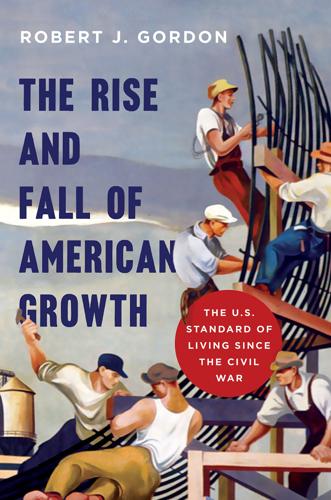
The Rise and Fall of American Growth: The U.S. Standard of Living Since the Civil War (The Princeton Economic History of the Western World)
by
Robert J. Gordon
Published 12 Jan 2016
Ford provided legal staff to help workers buy houses; had a medical team of ten doctors and 100 nurses to provide health care, especially to injured workers; and arranged for language training of immigrants. But there was no toleration for the non-American customs of immigrant workers, and 100 of them were fired for taking a day off from work to celebrate the Eastern Orthodox Christmas. The reformer Ida Tarbell visited the community, planning to expose the oppressive Ford system, yet concluded, “I don’t care what you call it—philanthropy, paternalism, autocracy, the results which are being obtained are worth all you can set against them.”88 A broader historical view of real wages is provided in figure 8–7, which plots real wages of production nonsupervisory workers against real GDP per hour, both expressed as index numbers with 1940 equal to 100.
…
Diseased or spoiled beef, as well as adulteration and contamination of milk, were addressed by the initial Food and Drug Act of 1906 and subsequent legislation, as discussed in chapter 7. The 1906 act was a remarkably rapid legislative response to the appalling conditions in the Chicago stockyards described in Upton Sinclair’s The Jungle. What Sinclair revealed about the inner workings of the stockyards was matched by Ida Tarbell’s muckraking exposé of John D. Rockefeller and his Standard Oil monopoly.70 Rockefeller was described as “the ‘victim of a money-passion’ that drove him to get ahead by any means possible, however dishonorable.”71 The 1890 passage of the Sherman antitrust legislation led twenty-one years later to the Supreme Court decision to break up the Standard Oil trust.
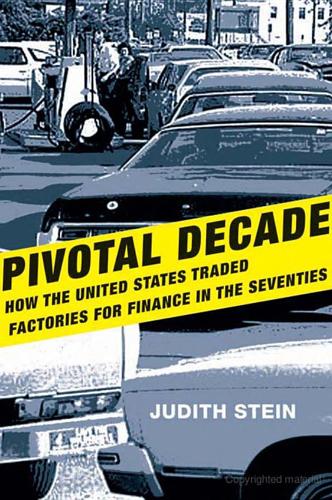
Pivotal Decade: How the United States Traded Factories for Finance in the Seventies
by
Judith Stein
Published 30 Apr 2010
Presidential hopeful Senator Henry “Scoop” Jackson summoned representatives of the leading oil companies before his subcommittee in January 1974 and accused the oilmen of misleading the public, creating a false crisis, obtaining “obscene profits,” and being disloyal for honoring the Arab boycott and not supplying the United States Armed Services.29 Not since the days of Ida Tarbell were oilmen raked over the coals in this manner. But the Democrats were as divided as the Republicans when it came to a program. Some advocated rationing, consumers in the eastern states liked the low prices produced by price controls, producers in the southwest wanted higher prices, others proposed a national corporation to explore for oil, and a few wanted to raise taxes on gasoline.
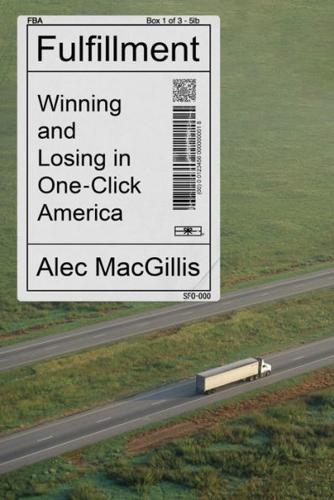
Fulfillment: Winning and Losing in One-Click America
by
Alec MacGillis
Published 16 Mar 2021
“one of the most feature-full and disruptive technology platforms”: Orban, Ahead in the Cloud, xxv. “I see parallels in Amazon’s behavior”: Rana Foroohar, “Amazon’s Pricing Tactic Is a Trap for Buyers and Sellers Alike,” Financial Times, September 2, 2018. reminiscent of the railroad giants: For more, see Ida Tarbell’s classic History of the Standard Oil Company (New York: McClure, Phillips and Co., 1904). more than 9 million square feet: Jonathan O’Connell, “Loudoun Rivals Silicon Valley for Data Centers,” The Washington Post, October 28, 2013. projecting a 40 percent increase: D. J. O’Brien, “Region Likely to See Continued Growth in Data Center Industry,” The Washington Post, September 6, 2013.
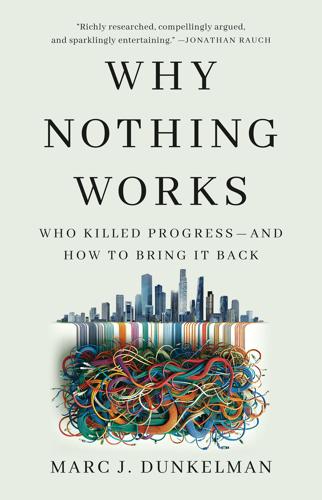
Why Nothing Works: Who Killed Progress--And How to Bring It Back
by
Marc J Dunkelman
Published 17 Feb 2025
Bob Woodward and Carl Bernstein, the Washington Post reporters who would forever be lionized within the media for their dogged reporting on Nixon, became icons explicitly because they employed a more skeptical journalistic lens. But Woodward and Bernstein weren’t muckraking journalists in the mold of Ida Tarbell or Lincoln Steffens, both of whom had wanted to expose how trusts and corporations were corrupting government. Nor were they political columnists like Jack Anderson and Drew Pearson, who traded more in gossip. Rather, Woodstein, as the pair was known together, was driven to make news simply by exposing the machinations of power—it went without saying that something was awry.106 If they weren’t of the New Left—many presumed Woodward was a conservative—they were nevertheless imbued with the Port Huron Statement’s underlying view of the power elite.

The War Below: Lithium, Copper, and the Global Battle to Power Our Lives
by
Ernest Scheyder
Published 30 Jan 2024
China has threatened to block exports to the United States of rare earths, used to make the magnets that help turn power from an EV battery into motion. The oil and natural gas revolution that swept the global economy in the late nineteenth century and early twentieth century involved little to no collective weighing of the environmental, social, and economic costs and benefits of burning fossil fuels. Indeed, while the muckraking journalist Ida Tarbell became famous for exposing the malfeasance of John D. Rockefeller Sr.’s Standard Oil, she did so primarily to point out his greed and monopolistic business practices, not the environmental harm that can be caused by oil extraction and refining. The electrification transformation now taking place does and must involve a dialogue about what society is willing to accept and what it is expecting.
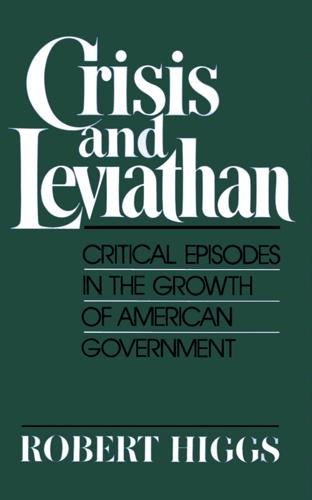
Crisis and Leviathan: Critical Episodes in the Growth of American Government
by
Robert Higgs
and
Arthur A. Ekirch, Jr.
Published 15 Jan 1987
Apart from the purely economic pros and cons of the trusts, their corruption of the legal and political systems provoked widespread outrage. Here was the most common grist for the muckrakers' mill. In widely circulated magazines, including McClure's, Collier's, and Everybody's, crusading journalists such as Ida Tarbell, Lincoln Steffens, and Ray Stannard Baker spotlighted the shady deals, illegal actions, political hanky-panky, and assorted unethical practices of railroads, meat-packers, insurance companies, and various other large corporate businesses in league with venal public officials. Steffens exclaimed: "He is a self-righteous fraud, this big business man.
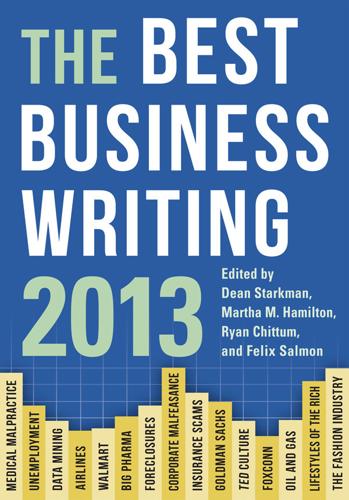
The Best Business Writing 2013
by
Dean Starkman
Published 1 Jan 2013
This time, reading over the issue, McClure noticed his (soon-to-be-famous) staff had delivered three monumental articles, all on a common theme: the lawlessness and corruption permeating bedrock American institutions. Lincoln Steffens had exposed mob-style rule of Minneapolis’s political machine (as he would for St. Louis, Pittsburgh, Chicago, and other American cities); Ida Tarbell had documented the underhanded methods John D. Rockefeller had used to build the Standard Oil monopoly; and Ray Stannard Baker told a chilling tale of union-sponsored thuggery. “We did not plan it so,” McClure said in a last-minute editorial. With that single issue, a new form of American journalism—known as muckraking—was born.
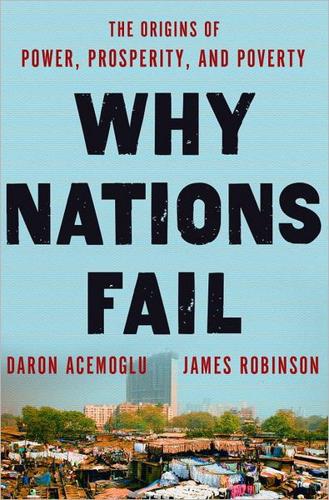
Why Nations Fail: The Origins of Power, Prosperity, and Poverty
by
Daron Acemoglu
and
James Robinson
Published 20 Mar 2012
In 1906 Roosevelt coined the term muckraker, based on a literary character, the man with the muckrake in Bunyan’s Pilgrim’s Progress, to describe what he regarded as intrusive journalism. The term stuck and came to symbolize journalists who were intrusively, but also effectively, exposing the excesses of Robber Barons as well as corruption in local and federal politics. Perhaps the most famous muckraker was Ida Tarbell, whose 1904 book, History of the Standard Oil Company, played a key role in moving public opinion against Rockefeller and his business interests, culminating in the breakup of Standard Oil in 1911. Another key muckraker was lawyer and author Louis Brandeis, who would later be named Supreme Court justice by President Wilson.
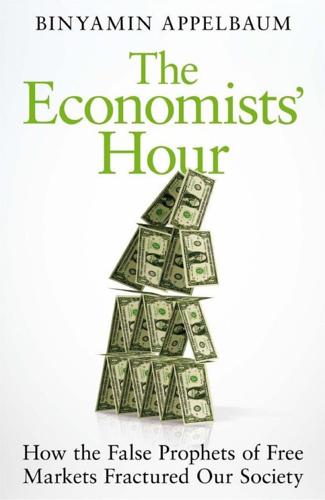
The Economists' Hour: How the False Prophets of Free Markets Fractured Our Society
by
Binyamin Appelbaum
Published 4 Sep 2019
Louis Brandeis, one of the great advocates for the preservation of small business, told Congress in 1911, “I think we are in a position, after the experience of the last twenty years, to state two things: In the first place, that a corporation may well be too large to be the most efficient instrument of production and of distribution, and, in the second place, whether it has exceeded the point of greatest economic efficiency or not, it may be too large to be tolerated among the people who desire to be free.” See “Control of Corporations, Persons, and Firms Engaged in Interstate Commerce,” Senate Committee on Interstate Commerce, November 29, 1911, 1174. 9. Standard Oil was famously portrayed as a predatory monopoly by the muckraking journalist Ida Tarbell, who was raised in the Pennsylvania oil fields and whose father, a small-time oilman, was driven from business by Rockefeller. The Supreme Court, in ordering the company’s dissolution, accepted Tarbell’s characterization; historians and economists continue to debate whether Rockefeller was a superior businessman or a cheat.
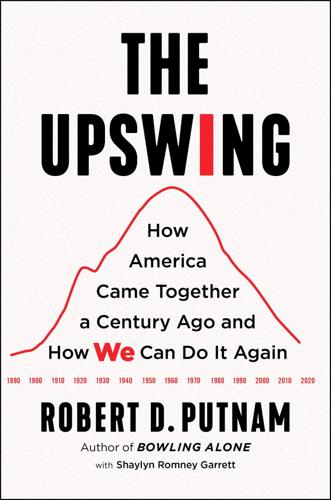
The Upswing: How America Came Together a Century Ago and How We Can Do It Again
by
Robert D. Putnam
Published 12 Oct 2020
Though her pieces were never published in white-run Progressive magazines of the day, Wells joined the ranks of many Progressive journalists who worked to expose the hypocrisy and brutality of the Gilded Age. Lincoln Steffens uncovered rampant corruption in city politics, Jacob Riis used photojournalism to lay bare the inhumane living conditions in urban tenements, Ida Tarbell exposed the excesses of John D. Rockefeller’s monopolistic Standard Oil company, Upton Sinclair took on the abuses of the meatpacking industry, and Ray Stannard Baker covered both brutal crackdowns on striking workers and racism in the South. Known as “muckrakers,” these writers produced vivid portraits of the human cost of exploitative and unjust systems, fueling a moral awakening that inspired countless activists and reformers, and stirred the public to take action on the most pressing issues of the day.
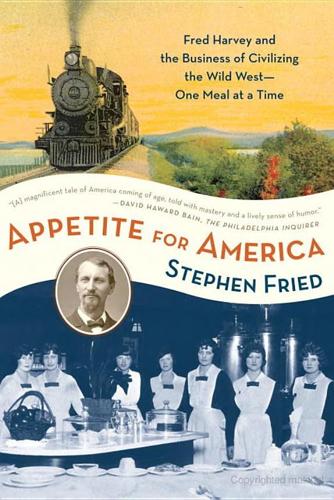
Appetite for America: Fred Harvey and the Business of Civilizing the Wild West--One Meal at a Time
by
Stephen Fried
Published 23 Mar 2010
By year’s end, health officials finally declared an all-out war, but without medicinal weapons they could only resort to increased fines for spitting and, in some cities, a ban on kissing and “all forms of petting.” Many people, including many celebrated patients, survived the illness: among them Charlie Chaplin, Ethel Barrymore, Jackie Coogan, Lon Chaney, Mrs. Cornelius Vanderbilt Jr., journalist Ida Tarbell, opera prima donna Ganna Walska, and, at the beginning of baseball season, Babe Ruth. But more than a hundred thousand Americans did not survive. And unlike previous epidemics, which mostly struck in cities, this one killed in even the most remote territories: More than 10 percent of the entire Indian population of the Northwest was wiped out.
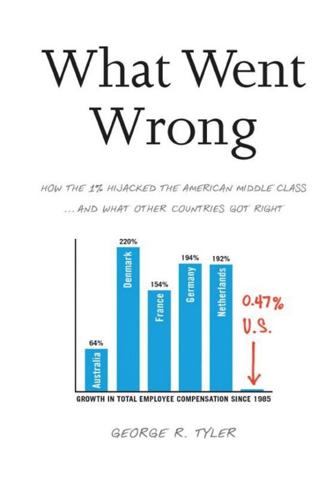
What Went Wrong: How the 1% Hijacked the American Middle Class . . . And What Other Countries Got Right
by
George R. Tyler
Published 15 Jul 2013
Roosevelt helped guide this rejuvenation of traditional American values and thereby became a transformational president: “Franklin Roosevelt was one of those rare individuals who had a significant impact on history, but his leadership explains less about the changes the United States underwent in the 1930s than does a fundamental shift in the values of the American people.”5 Building on reformers including President Theodore Roosevelt, Ida Tarbell, and Upton Sinclair, the recrafting of American capitalism by Franklin D. Roosevelt placed the US economy on a trajectory toward family capitalism. In calling on the “angels” in each of us, Roosevelt reawakened the frontier mindset of Americans to look beyond their own lives to broader concerns, such as the value added to society by expansive public education.
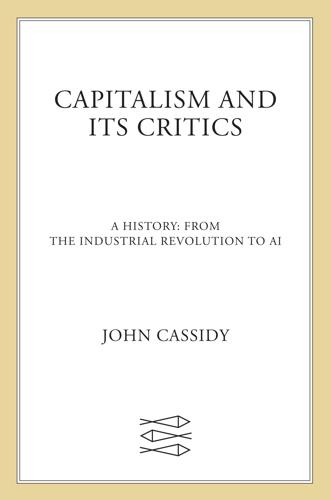
Capitalism and Its Critics: A History: From the Industrial Revolution to AI
by
John Cassidy
Published 12 May 2025
“There are, at any rate, few and not of great magnitude. And the endeavor of all such enterprises that look to a permanent continuance of their business is to establish as much of a monopoly as may be.”69 These comments about monopolization were timely, if not exactly pathbreaking. By 1904, the journalist Ida Tarbell’s famous multipart exposé of Standard Oil had appeared in McClure’s magazine, and Theodore Roosevelt was in the White House. He had created a Department of Commerce, and within it a Bureau of Corporations tasked with investigating the trusts. Roosevelt’s Justice Department had filed a lawsuit to break up Northern Securities, a holding company that J.
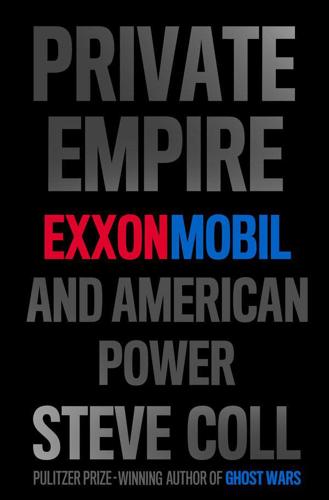
Private Empire: ExxonMobil and American Power
by
Steve Coll
Published 30 Apr 2012
At its peak Standard Oil controlled 90 percent of the American oil market. From its early days it attracted the same kind of opposition that would shadow Exxon a century later—muckrakers, journalists, trustbusters, and other American factions suspicious of concentrated industrial power. The muckraker Ida Tarbell’s nineteen-part McClure’s Magazine series, published in 1904 as the book The History of the Standard Oil Company, attacked the corporation’s power but acknowledged the strengths of its scientific culture: “From the beginning the Standard Oil Company has studied thoroughly everything connected with the oil business.
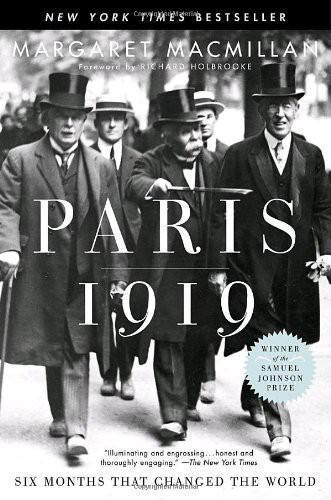
Paris 1919: Six Months That Changed the World
by
Margaret Macmillan; Richard Holbrooke; Casey Hampton
Published 1 Jan 2001
The list was prescient.7 The Supreme Council also faced intense scrutiny from the public. In the weeks leading up to the start of the proceedings, hundreds of journalists had arrived in Paris. The French government created a lavish press club, in a millionaire’s house. The press, men mainly but also including a handful of women, such as the great American muckraker Ida Tarbell, were ungrateful. They sneered at the vulgarity of the décor, and the Americans nicknamed it “The House of a Thousand Teats.” More important, the press complained about the secrecy of the proceedings. Wilson had talked in his Fourteen Points about “open covenants openly arrived at.” As with many of his catchphrases, its meaning was not clear, perhaps not even to Wilson himself, but it caught the public imagination.8 Wilson certainly meant there should be no more secret treaties, such as those that he and many others saw as one of the causes of the Great War, but did he mean that all the negotiations would be open for public scrutiny?
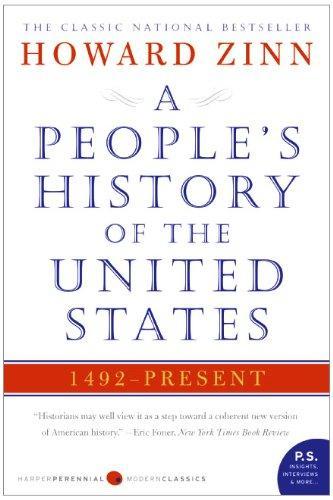
A People's History of the United States
by
Howard Zinn
Published 2 Jan 1977
It was a time when even a self-exiled literary figure living in Europe and not prone to political statements—the novelist Henry James—could tour the United States in 1904 and see the country as a “huge Rappacini garden, rank with each variety of the poison-plant of the money passion.” “Muckrakers,” who raked up the mud and the muck, contributed to the atmosphere of dissent by simply telling what they saw. Some of the new mass-circulation magazines, ironically enough in the interest of profit, printed their articles: Ida Tarbell’s exposure of the Standard Oil Company; Lincoln Steffens’s stories of corruption in the major American cities. By 1900, neither the patriotism of the war nor the absorption of energy in elections could disguise the troubles of the system. The process of business concentration had gone forward; the control by bankers had become more clear.